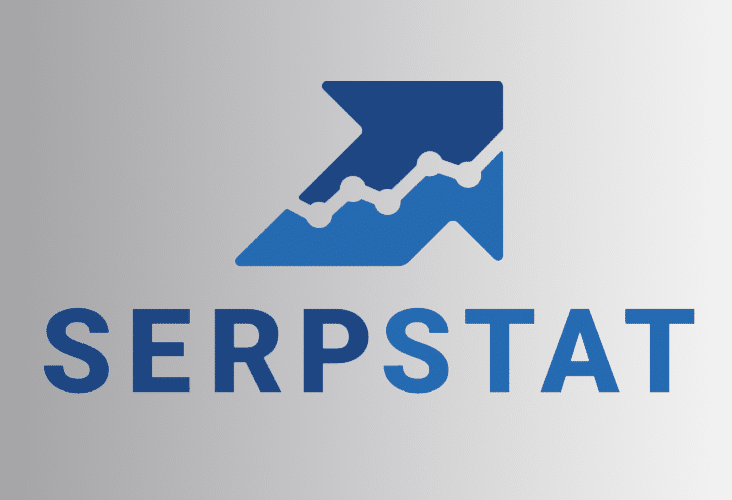Serpstat is an SEO software suite founded by Oleg Salamaha. It’s slowly evolved from a keyword research tool into a “growth hacking tool” that contains features for link building, technical SEO, PPC and more.
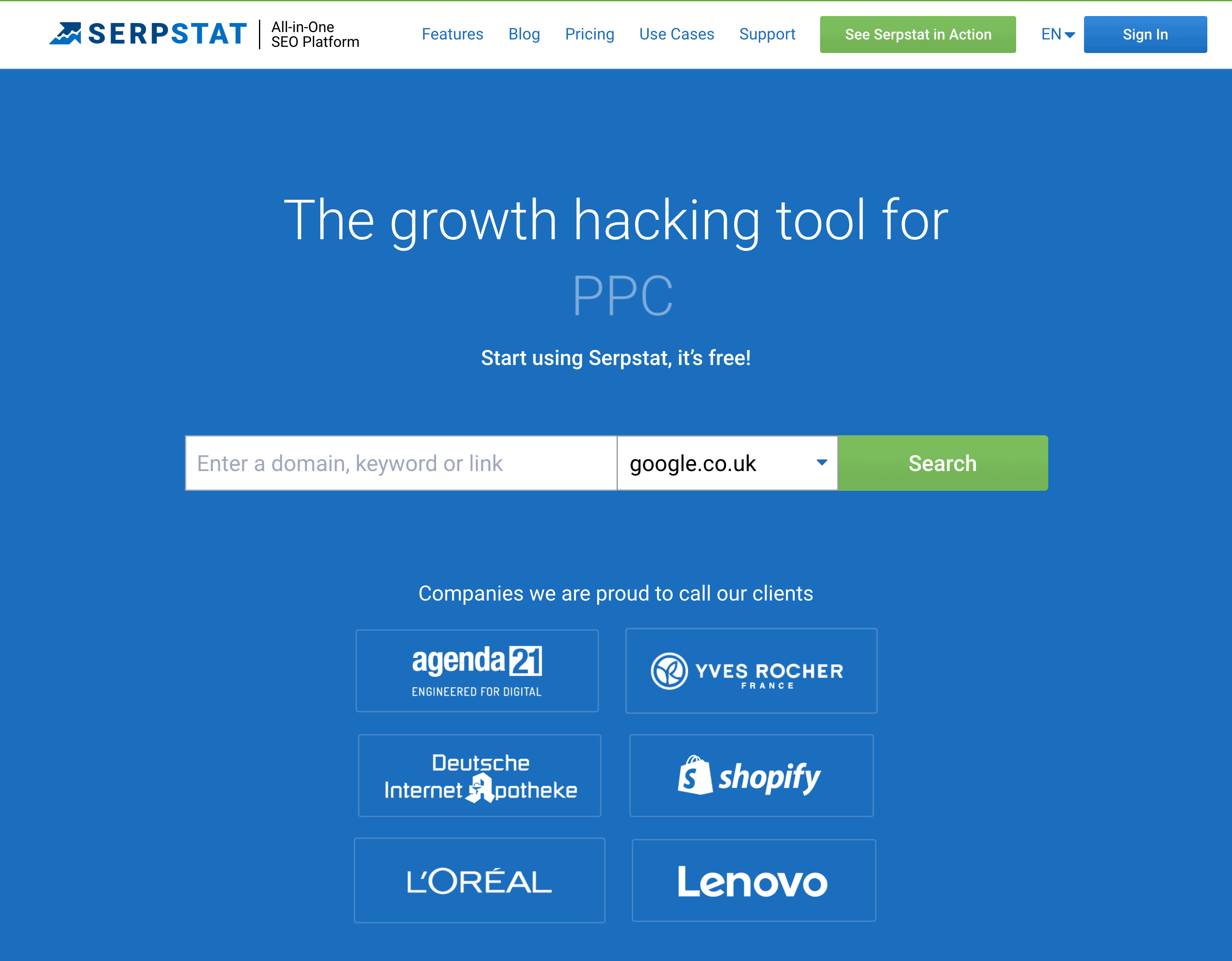
If you’ve ever used a major SEO tool (like Moz or SEMrush) you’ll be right at home with Serptat. It’s got many of the same features. And a similar UI.
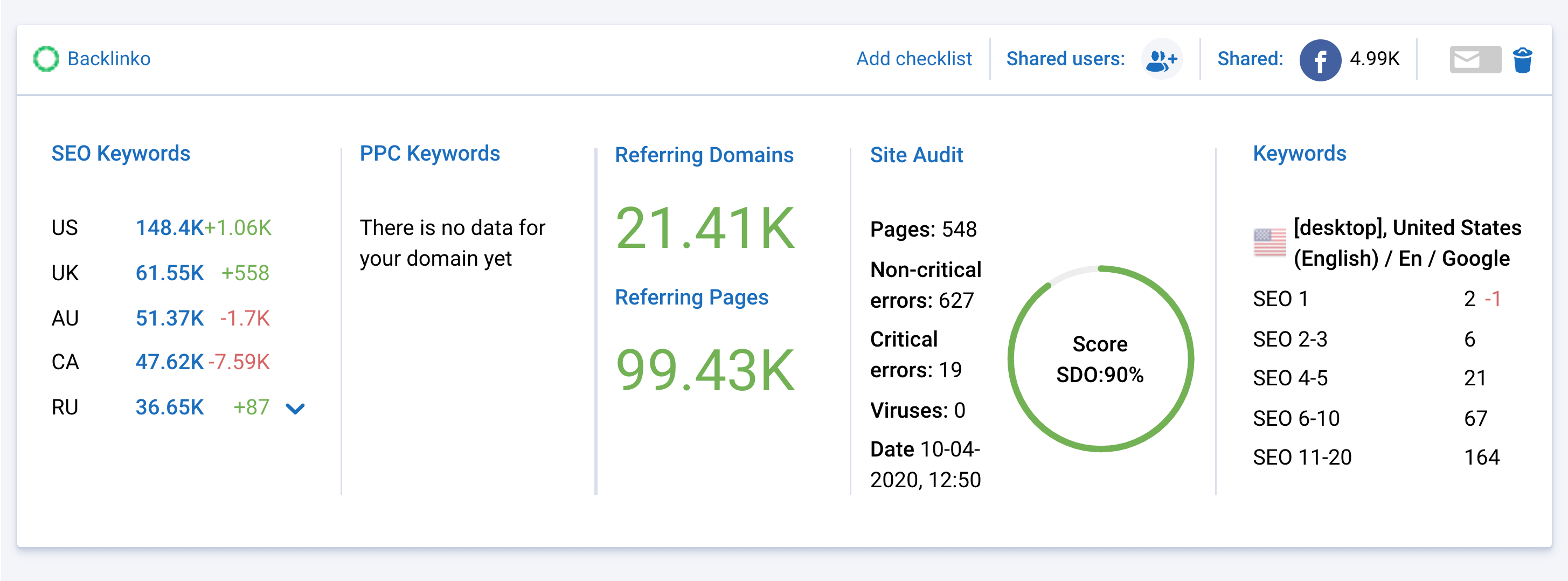
And now it’s time for my in-depth Serpstat review.
Website Analysis: See What’s Working For Your Competitors
Here’s where you get a deep dive into a competitor’s SEO and PPC.
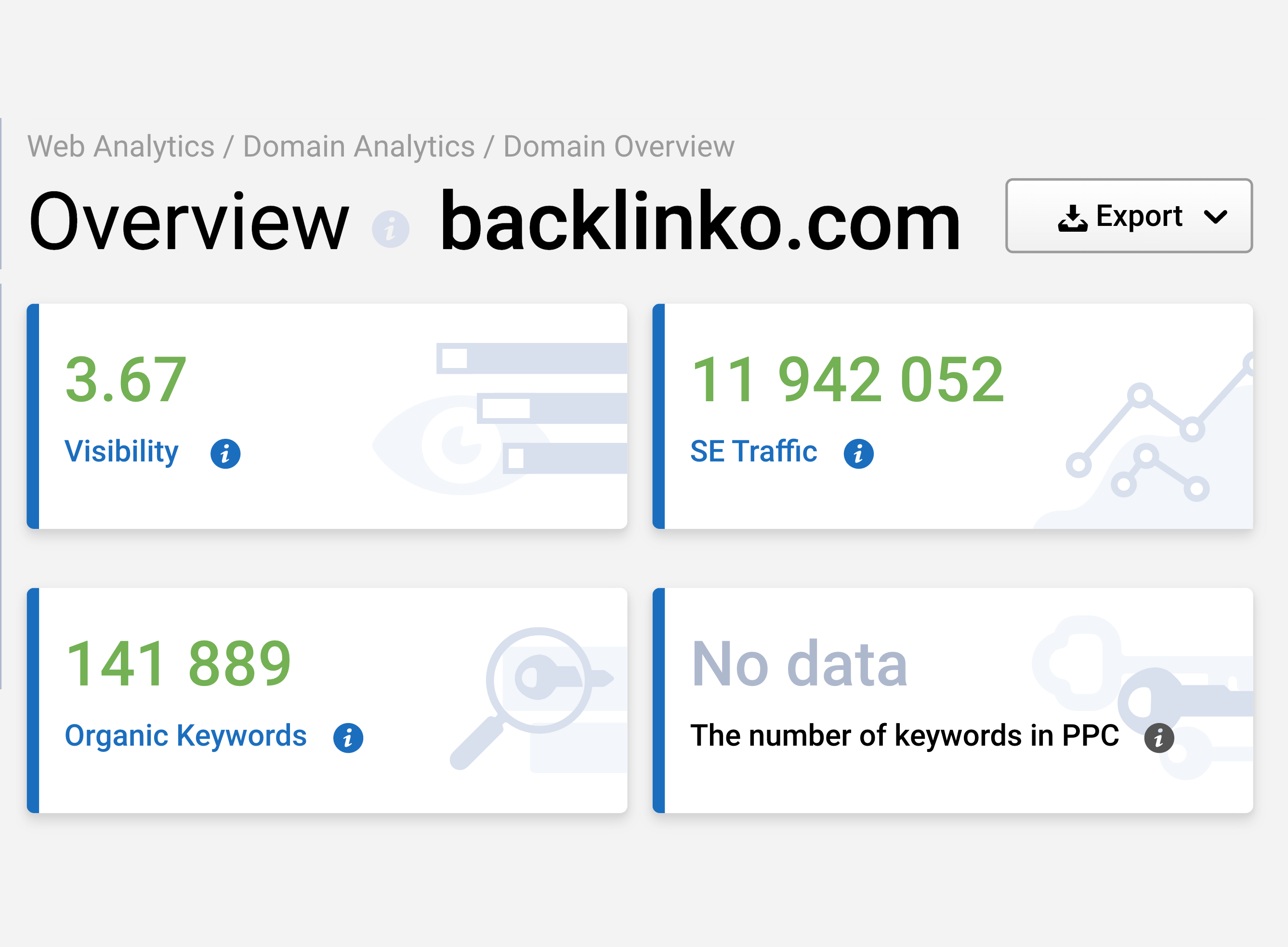
Again: if you’ve used Ahrefs or SEMrush lately, this feature should look familiar to you.
You get data on that site’s best SEO keywords:
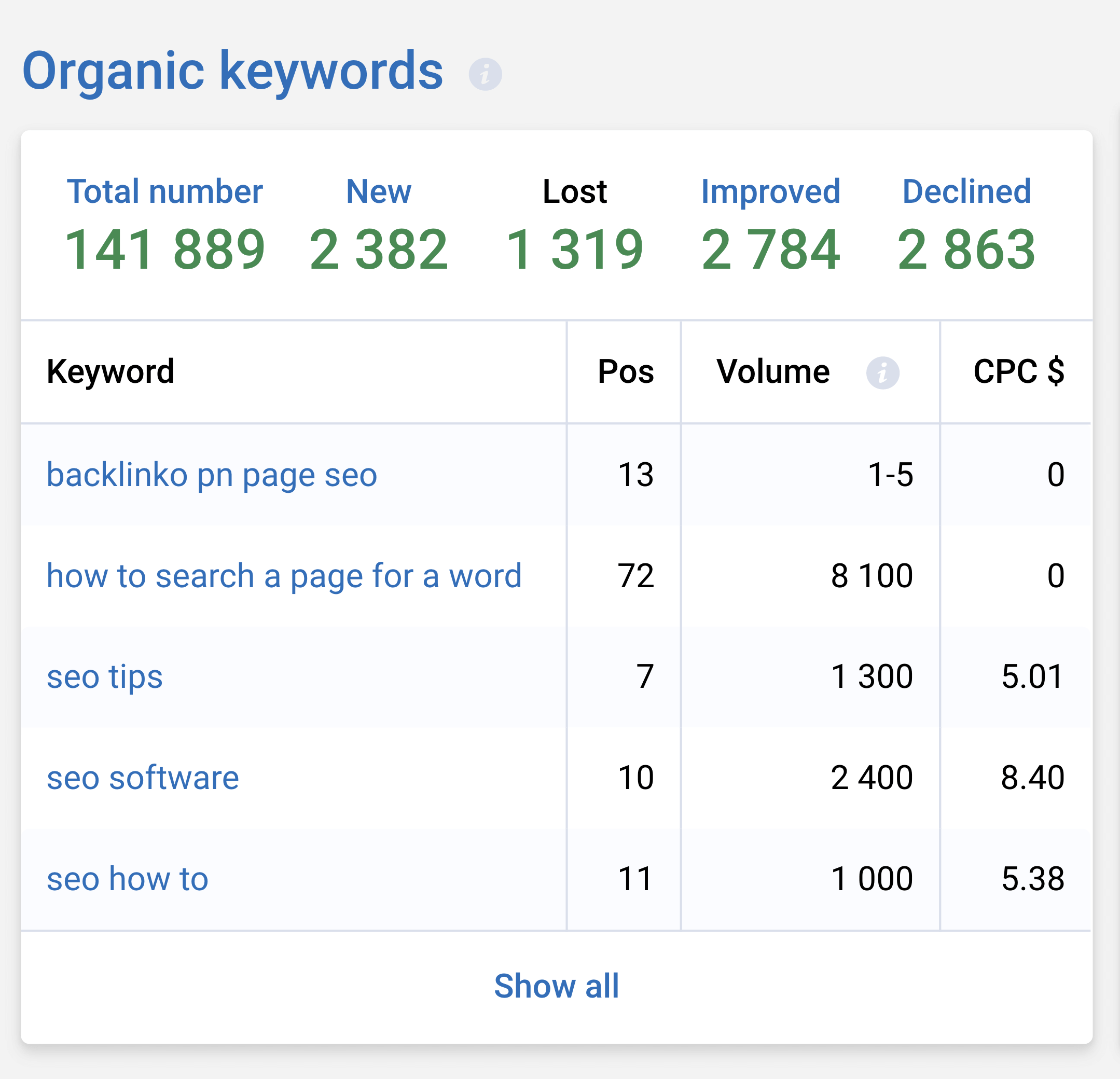
And the Google Ads keywords that are bringing them the most traffic.
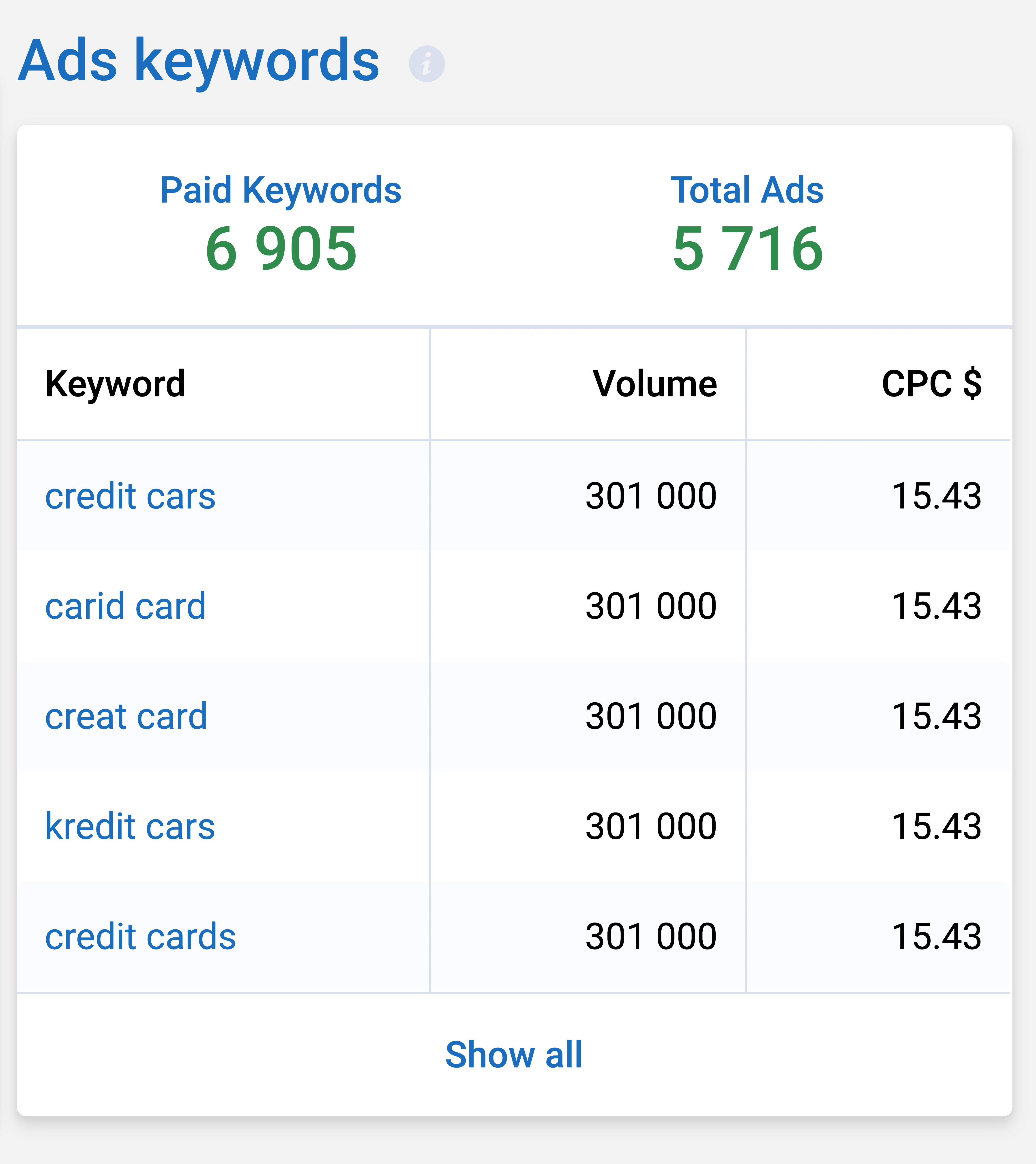
You can also see how their search engine visibility and traffic has changed over a specific timeframe (their data on most sites goes back to 2015):
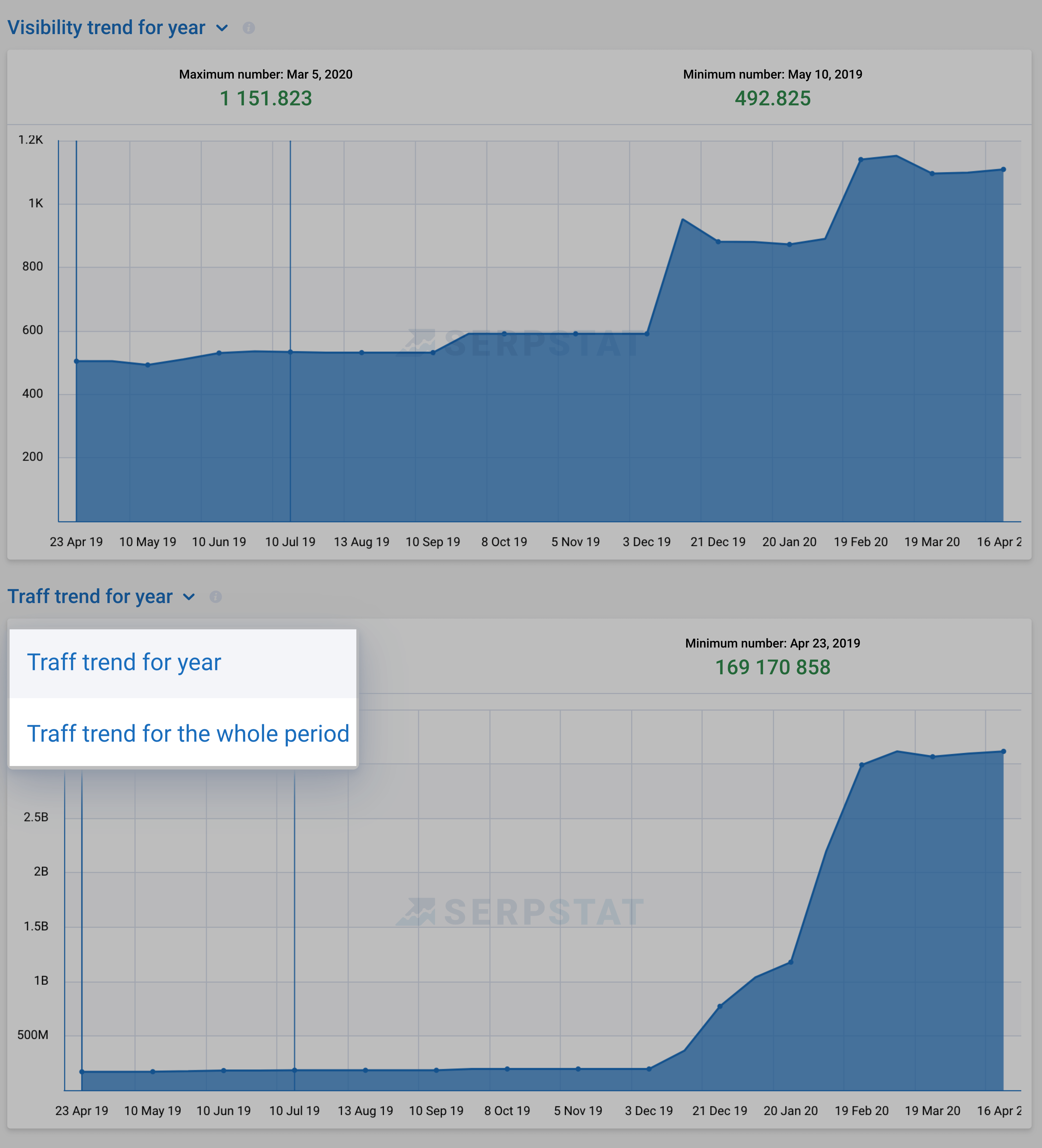
In my opinion, the “competitors in organic search” report is really well done:
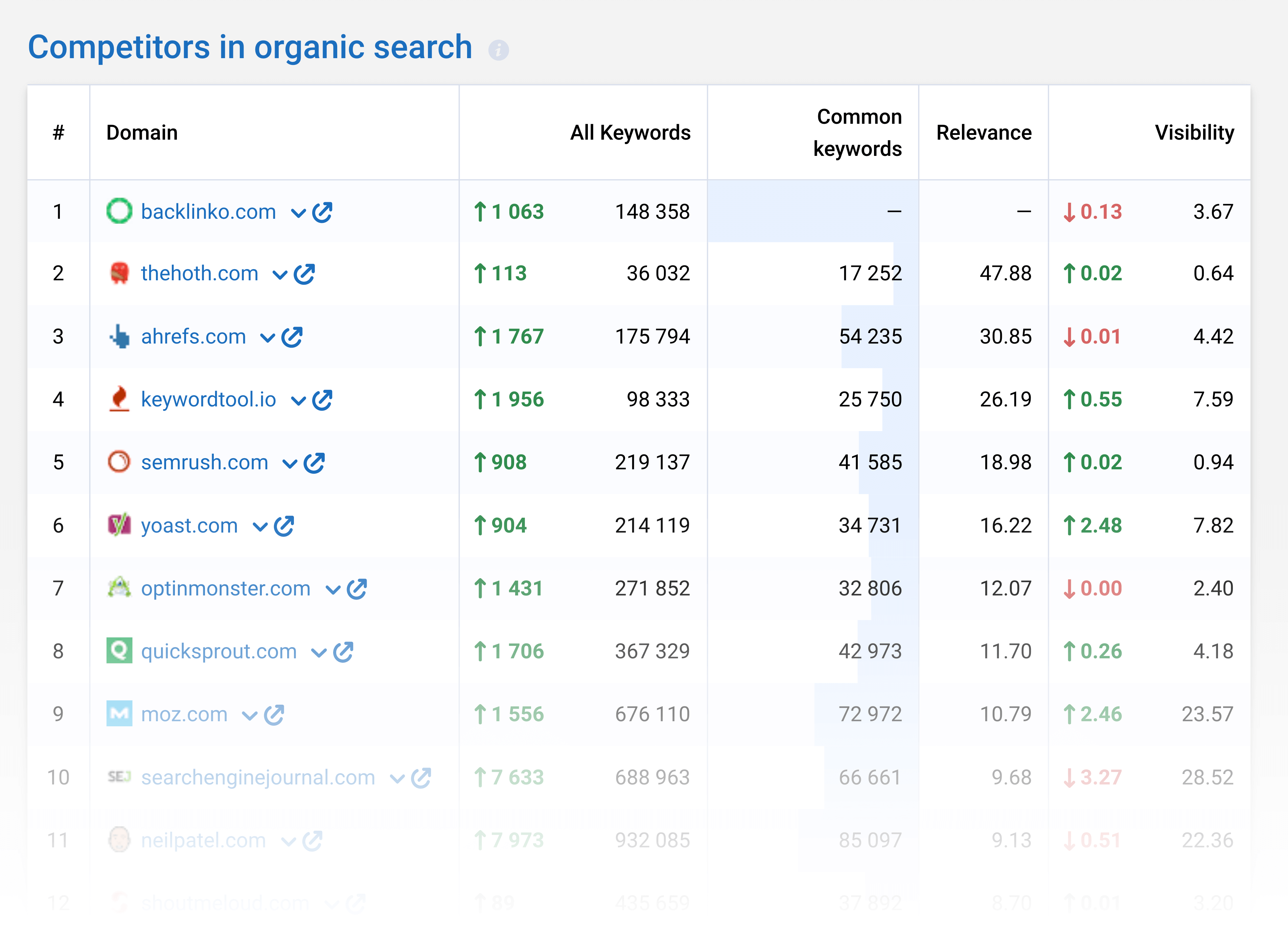
There’s even a “competitors graph” to help you visualize that site’s main competitors on the first page of Google.
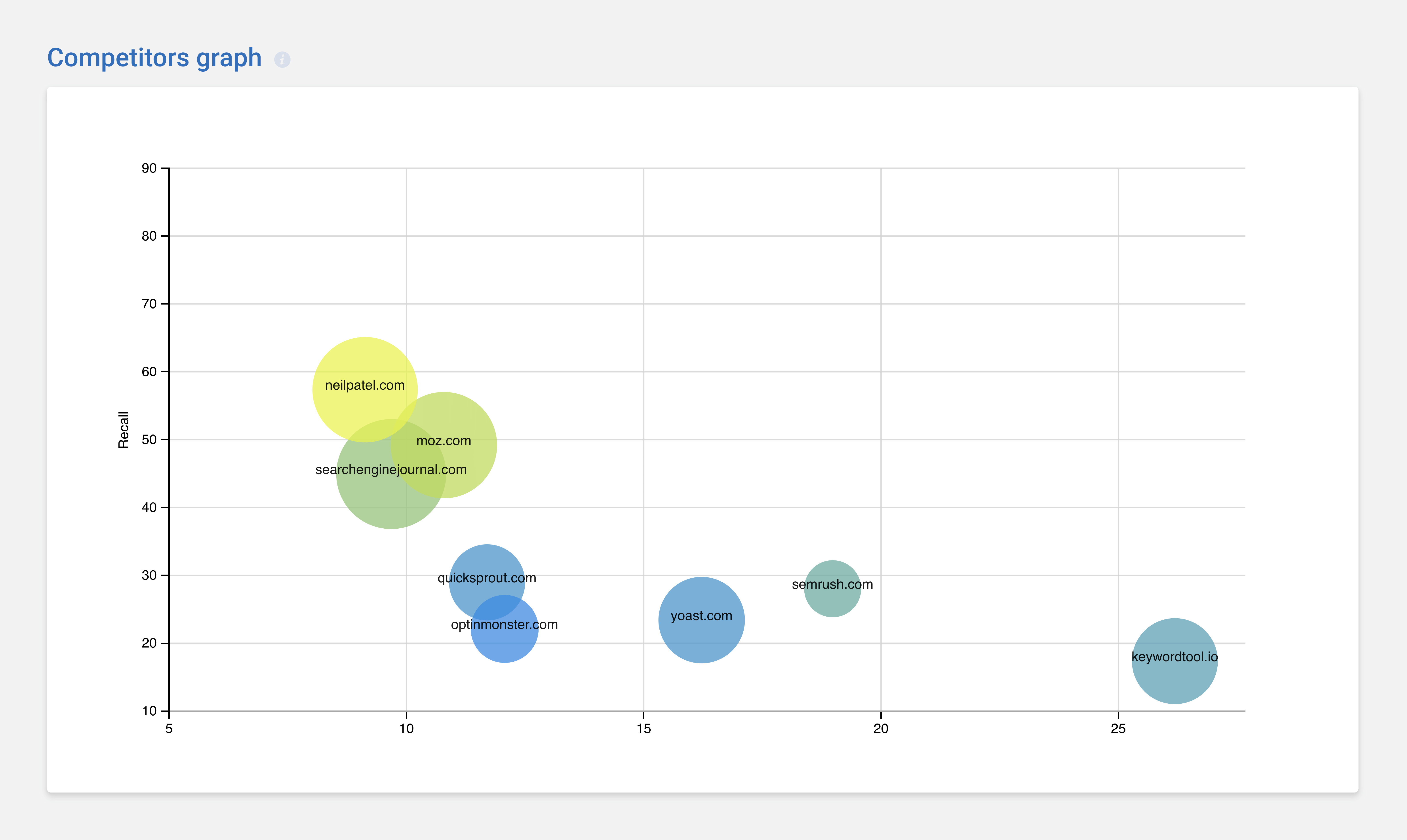
Now: this is just the overview page. If you want to dig deeper on any of these reports, you can.
In fact, let’s take a quick look at how some of these individual reports stack up.
Organic Keywords: Find Your Competitors’ Top SEO Terms
If you use Serstat for SEO, then you’ll probably find yourself using the “Organic keywords” report more than any other.
That’s because it shows you a list of every single keyword that a site ranks for.
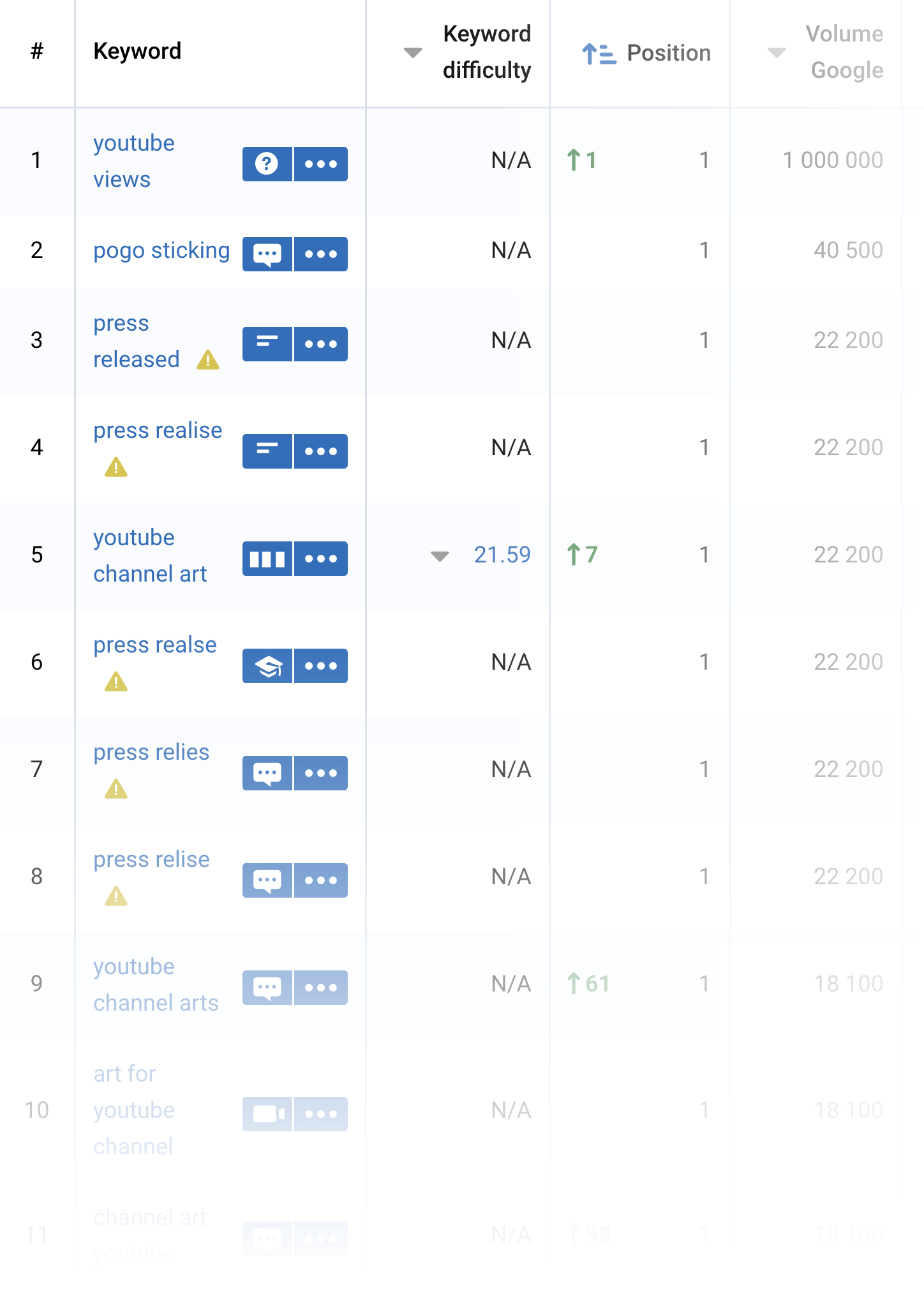
Again: this is a feature that many other paid SEO tools have. So it’s definitely not unique to Serpstat.
Unfortunately, I didn’t find the data here to be super accurate. For example, I decided to run my own site through the tool.
Here are the keywords that Serpstat says brings me the most traffic from Google.
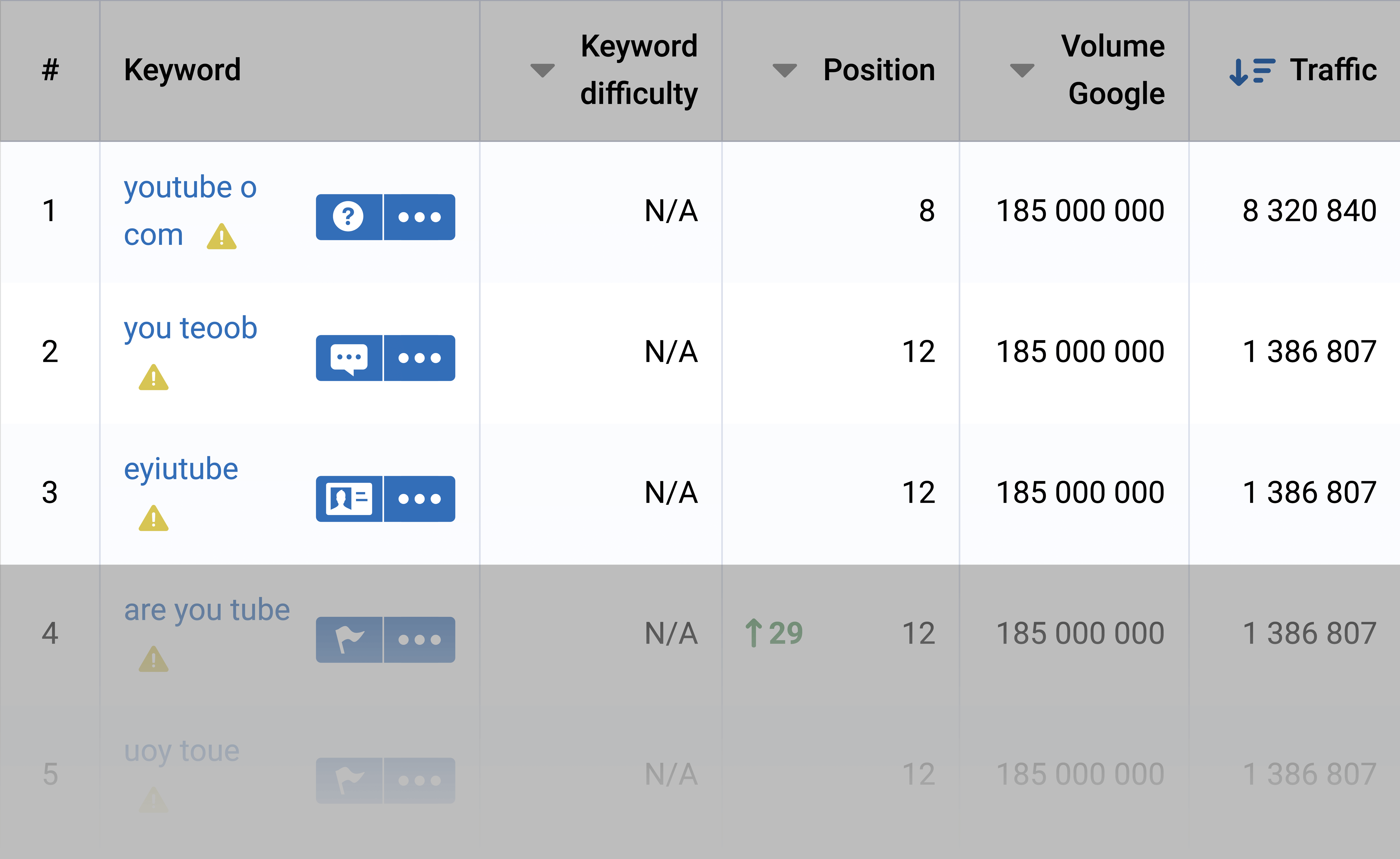
That’s not even close to accurate.
To be fair: no 3rd party tool is going to get this 100% right. You’d need the Google Search Console for that. And unless your competitors are super generous, they’re not about to share that data with you.
So my standard here isn’t: “this needs to be 100% spot on”. Instead it’s more: this should at least resemble what’s actually happening.
Unfortunately, that’s not the case here. According to Serpstat, here are Backlinko’s top 10 keywords:
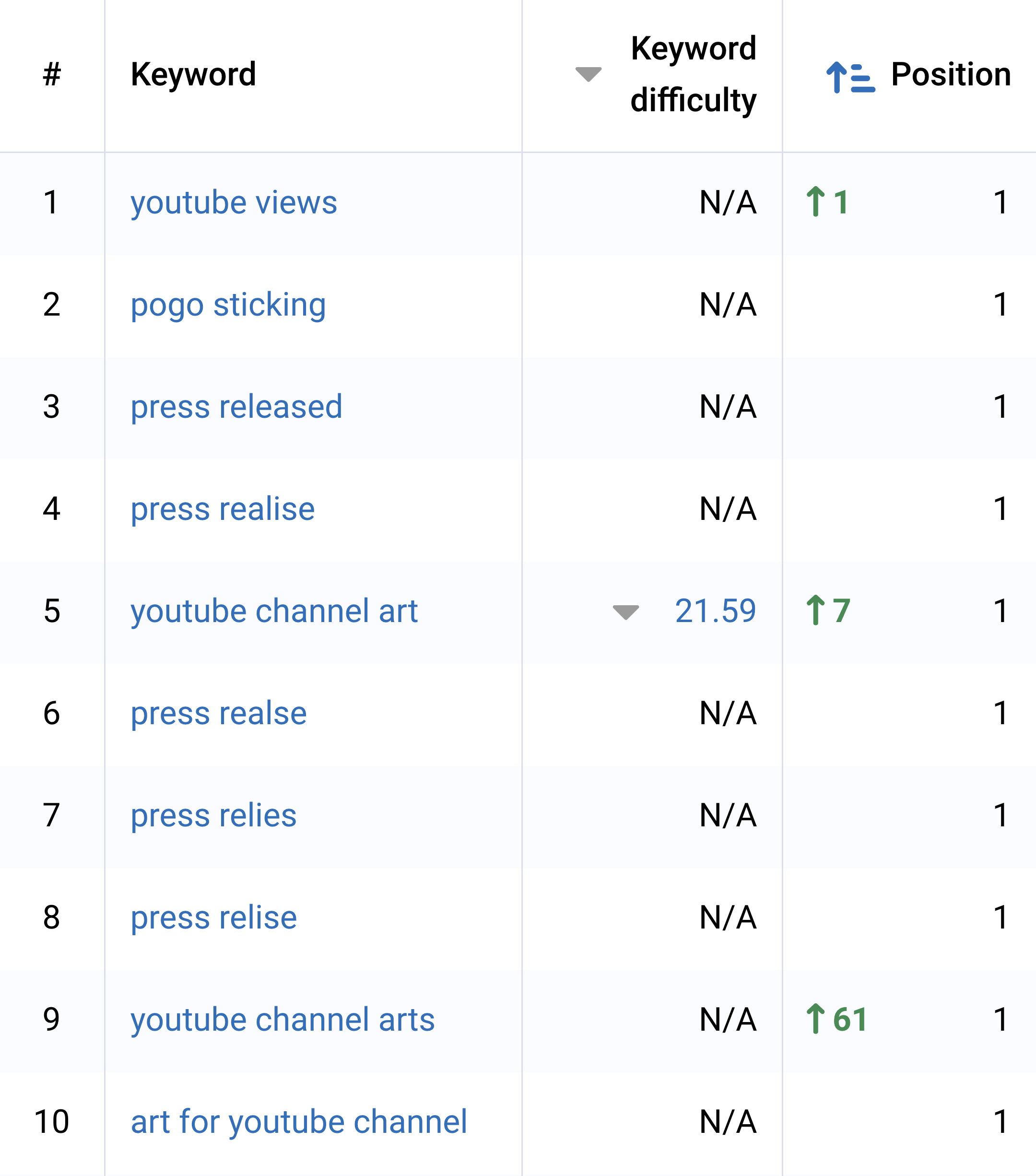
As you can see, 5 out of the top 10 are misspellings of “press release”.
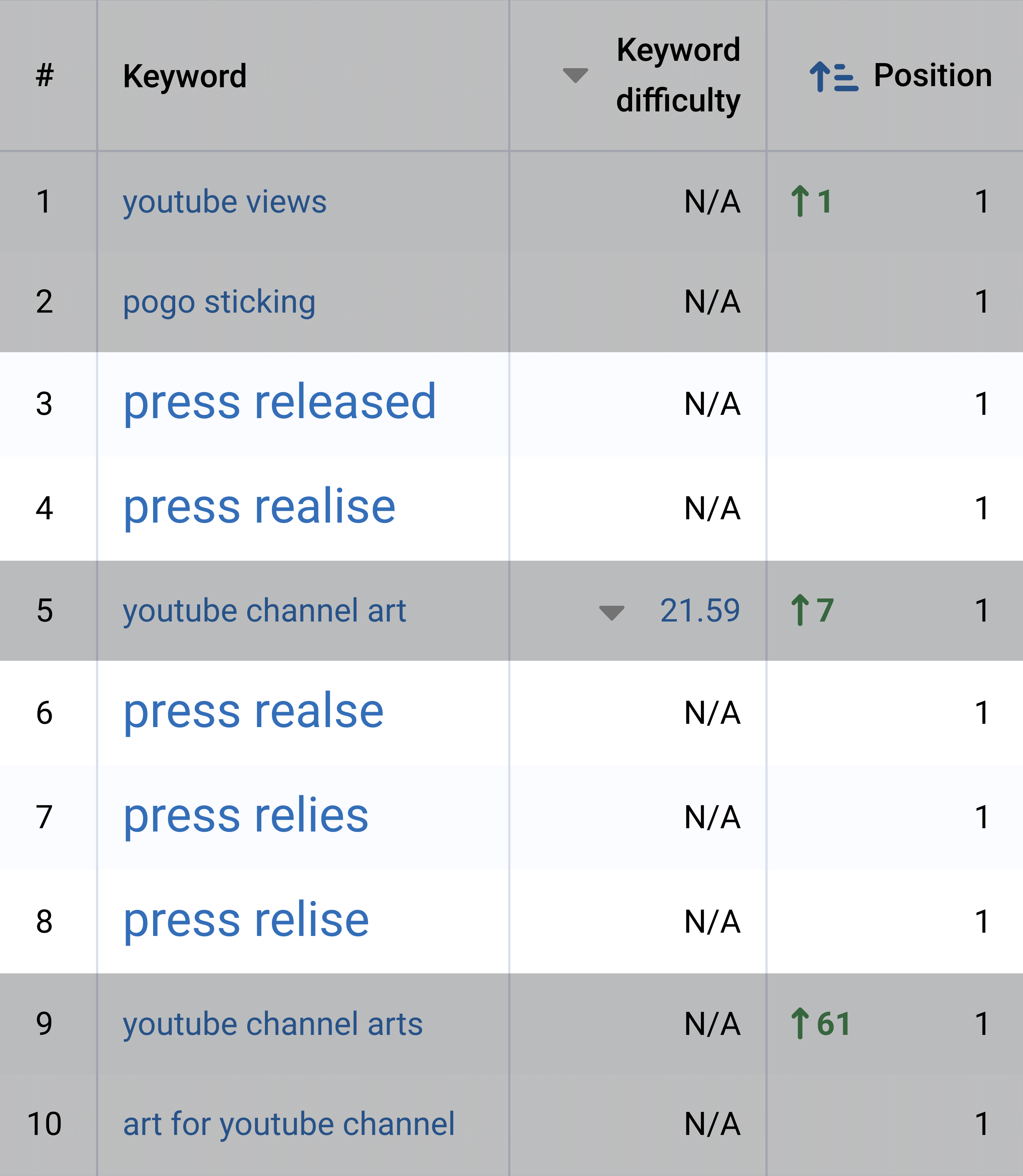
I can tell you from my own Search Console data, that “press release” and it’s variations don’t bring in a lot of search engine traffic. Neither does the supposed #2 keyword on the list: “pogosticking”.
Another thing I noticed is that most of the keyword difficulty scores for the keywords that I rank for are “N/A”.
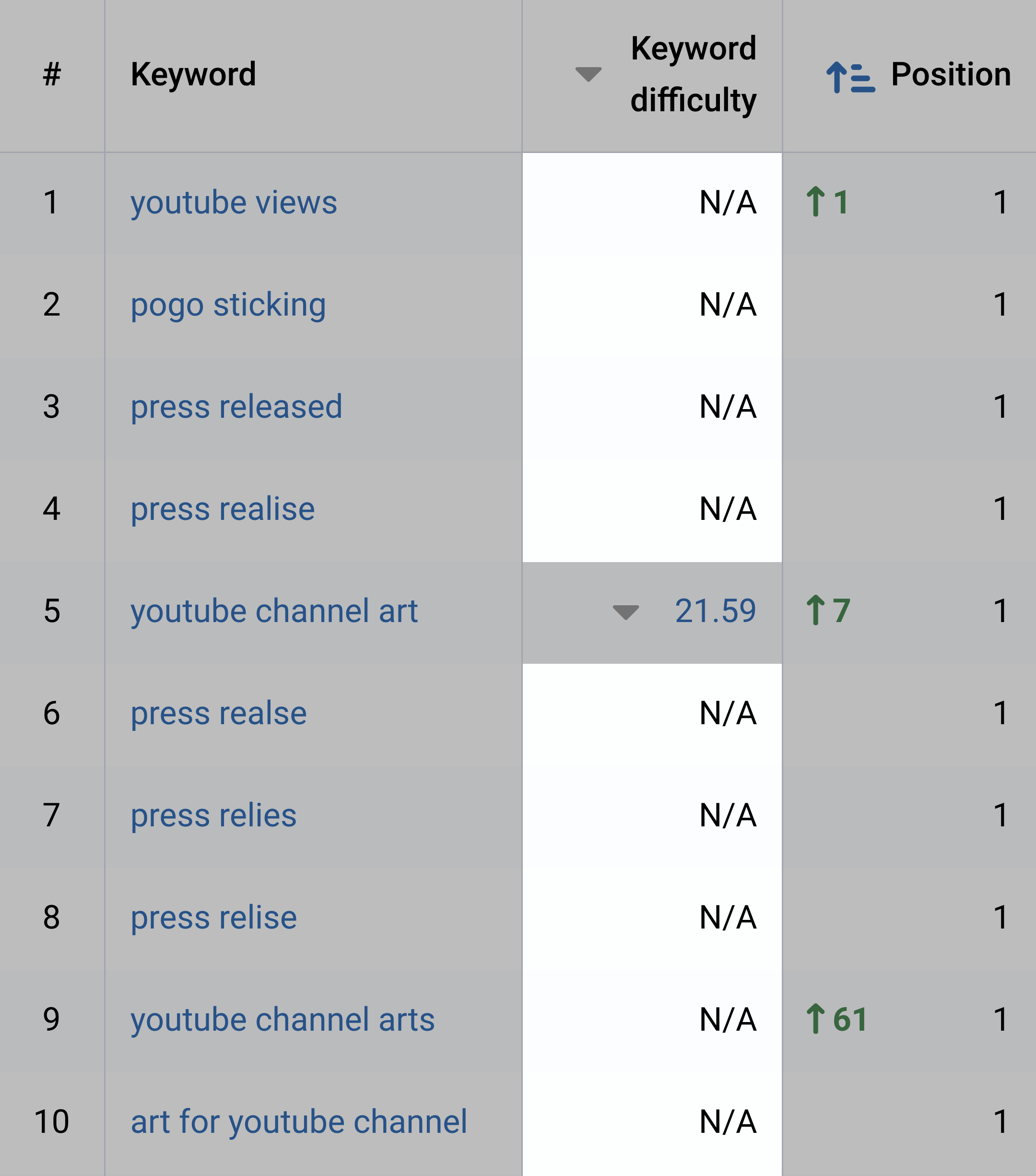
And when I say “most”, I mean like 90% of them. Which is also weird. It actually looks to me that their keyword difficulty feature wasn’t working when I tried out the tool.
Either way, I have to say that this feature has potential. But it’s not executed very well.
Top Pages: Discover SEO Content That’s Already Working
You can also use Serpstat to see the pages on a site that rank for lots of different keywords.
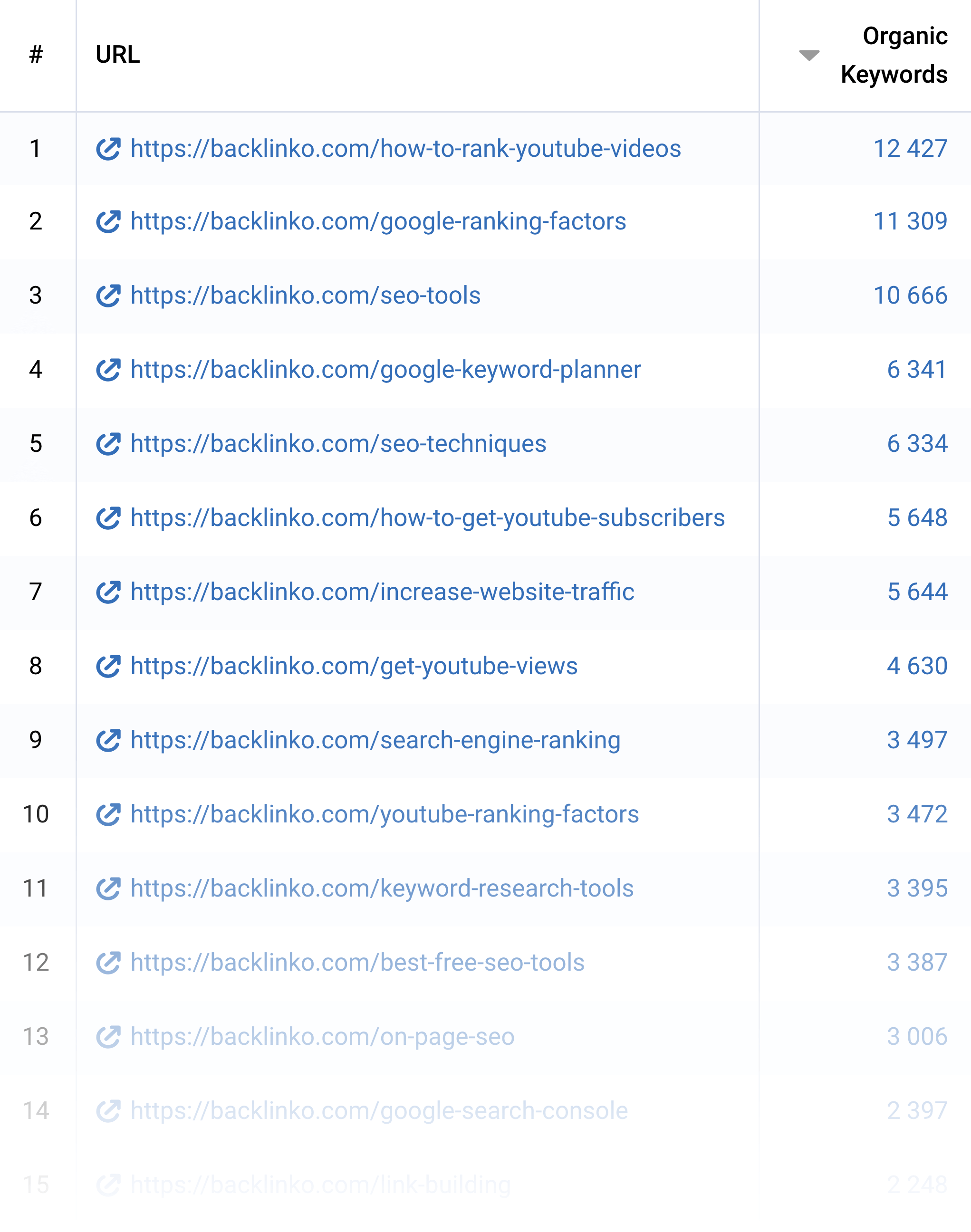
For whatever reason, this list was WAY more accurate than the organic keywords report.
In fact, the top 10 pages that they listed for Backlinko are all high-traffic pages. The order doesn’t match reality. But again, my standard here isn’t that the list should match my Google Analytics.
So yeah, this feature is actually well-done and looks to be accurate.
PPC Research: See a Competitor’s Top Google Ads
Overall, I found Serpstats’s PPC research to be really good.
Just enter a site and you get to see a list of keywords that they’re bidding on. And the exact ad copy that they’re using.

And if you want to dig deep into a site’s ads, Serpstat can generate a list of their ads, the keywords those ads show up for, CPC estimates, and more.
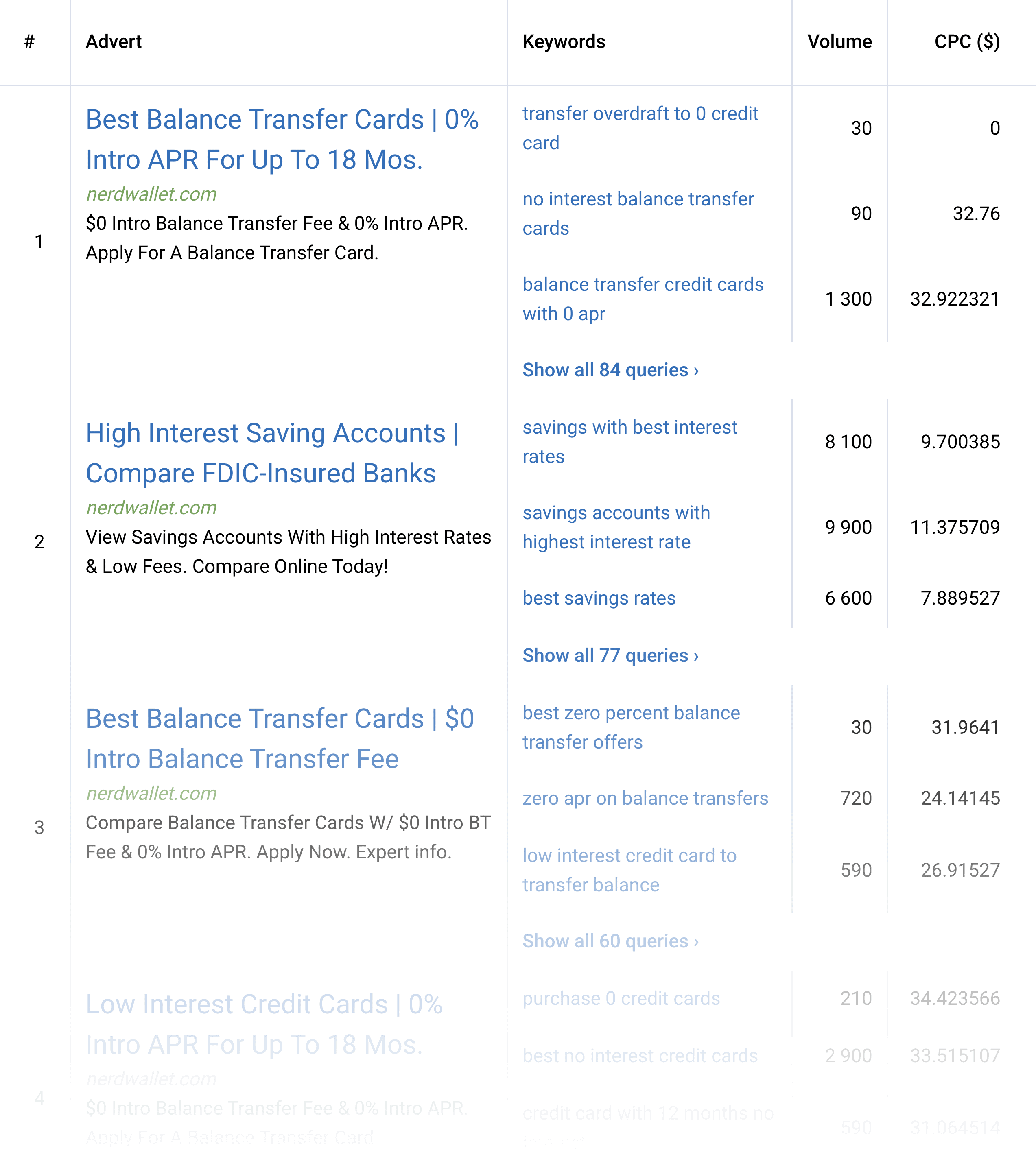
Their “Ad research” report gives you a full breakdown of the ads that they’re sending to a specific URL.

Serpstat’s Keyword Tool
Serpstat was originally a keyword research tool. So I had high expectations for this feature.
And I wasn’t disappointed. Serpstat’s keyword research tool is solid.
I especially liked their “related keywords” report.
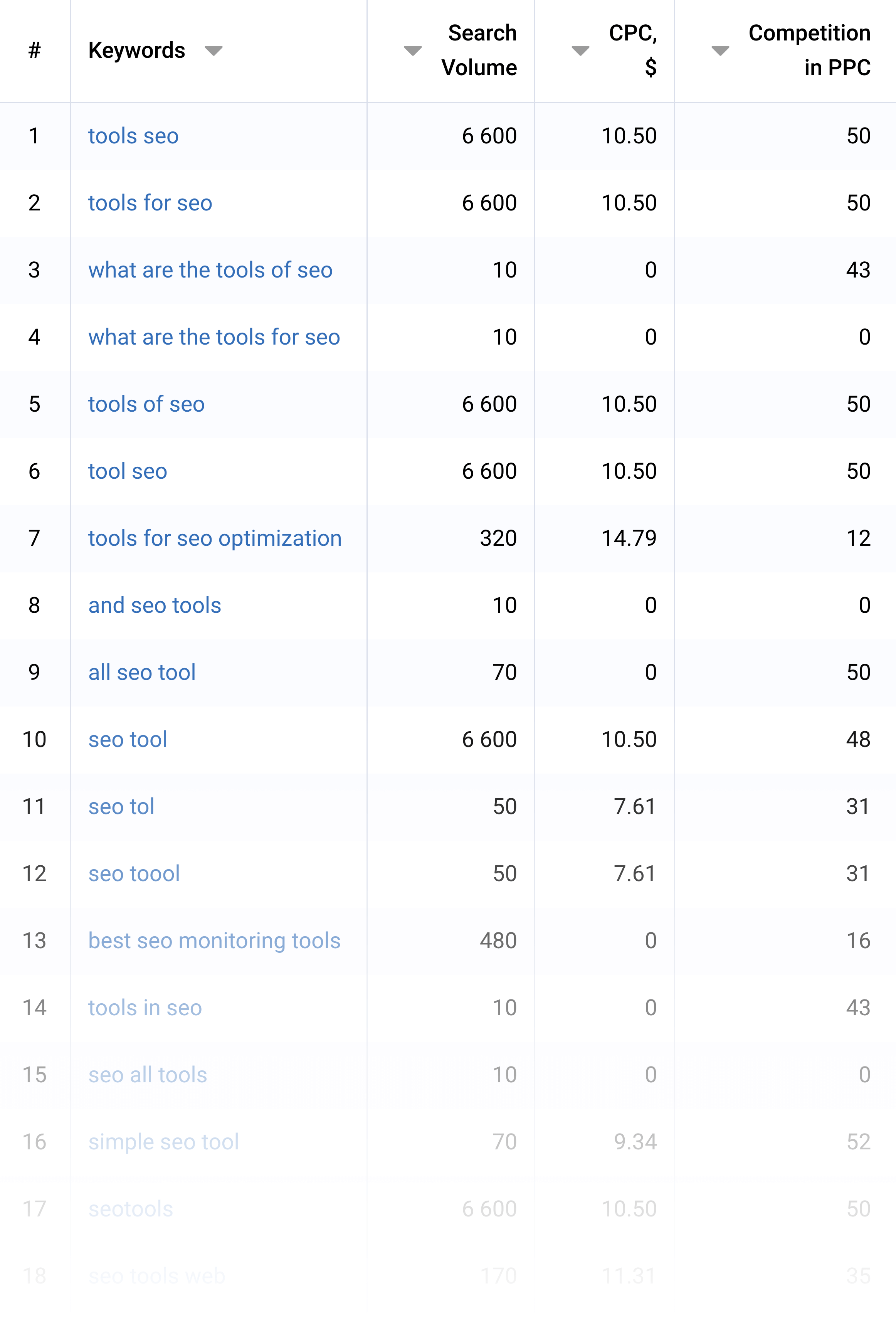
It had a lot of outside the box keyword suggestions that I haven’t seen in most other tools.
They also have a built-in “Search suggestions” report that scrapes Google autocomplete.
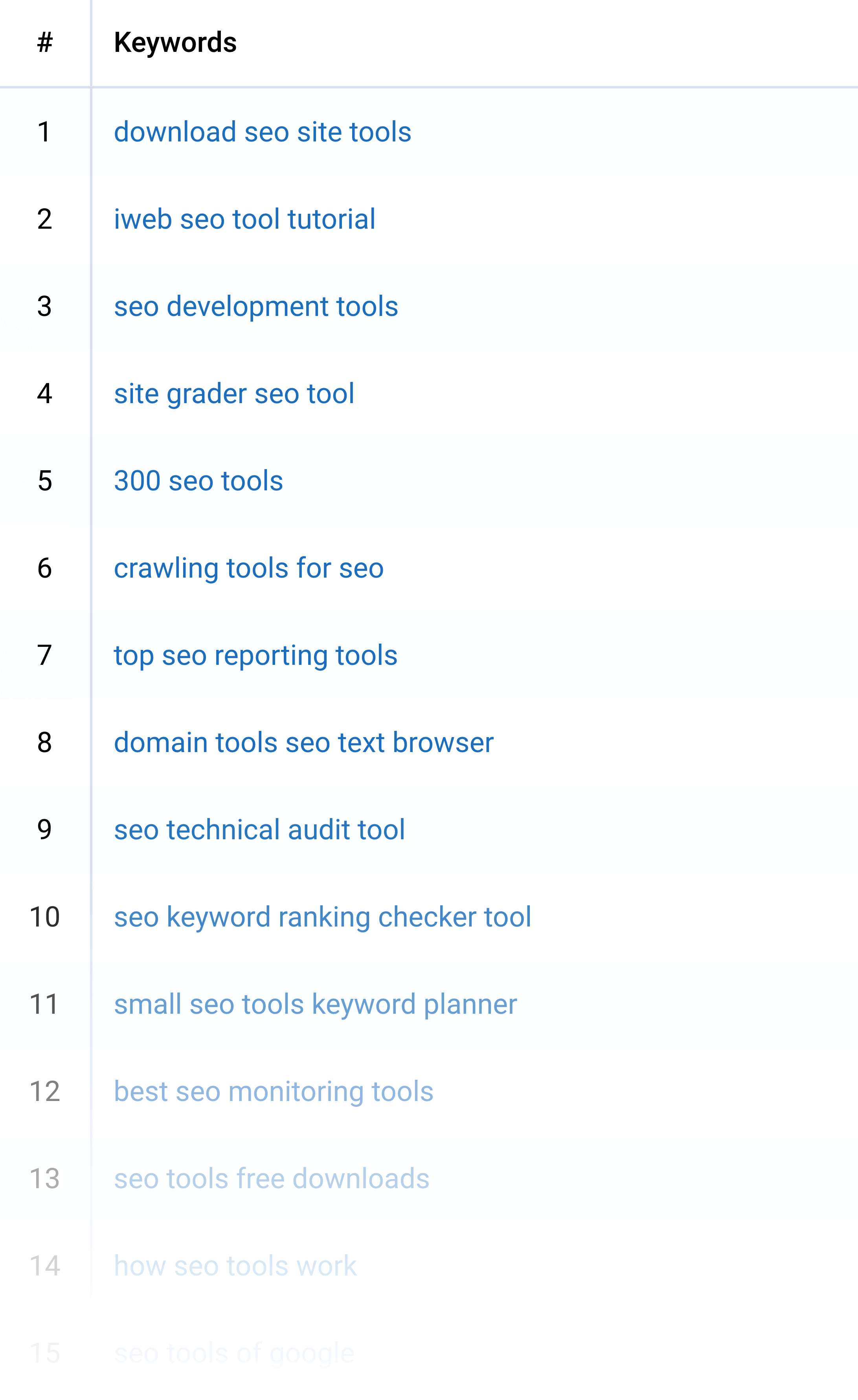
What I like about this feature is that you don’t just get a massive list of suggestions (which is actually hard to use).
They also give you a list of “most popular words” that Google suggests.
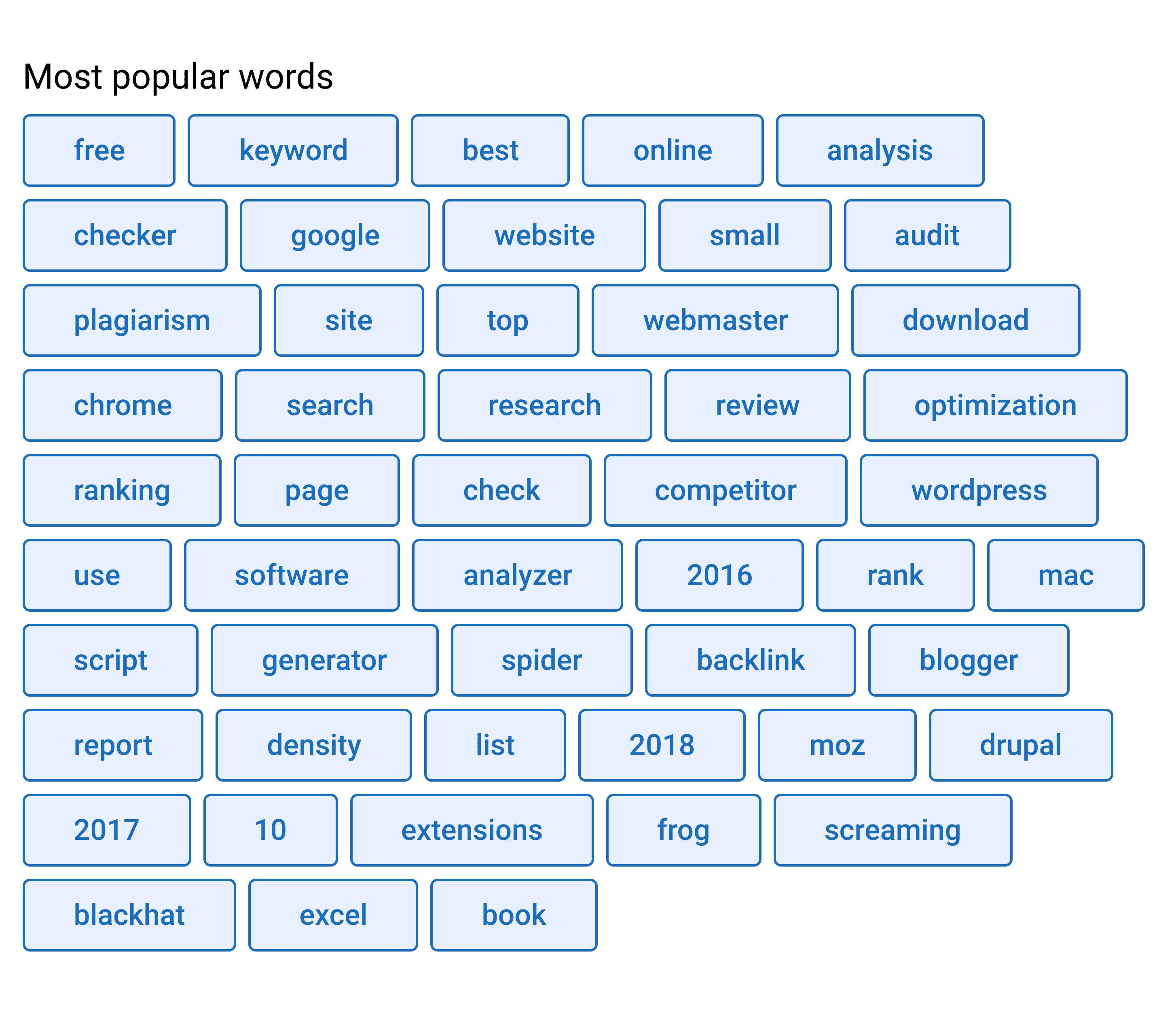
That way, you can figure out the types of terms that people use when they search for that topic. Very helpful.
Serpstat Backlink Analysis
Serpstat’s backlink analysis is similar to most other backlink checkers out there.
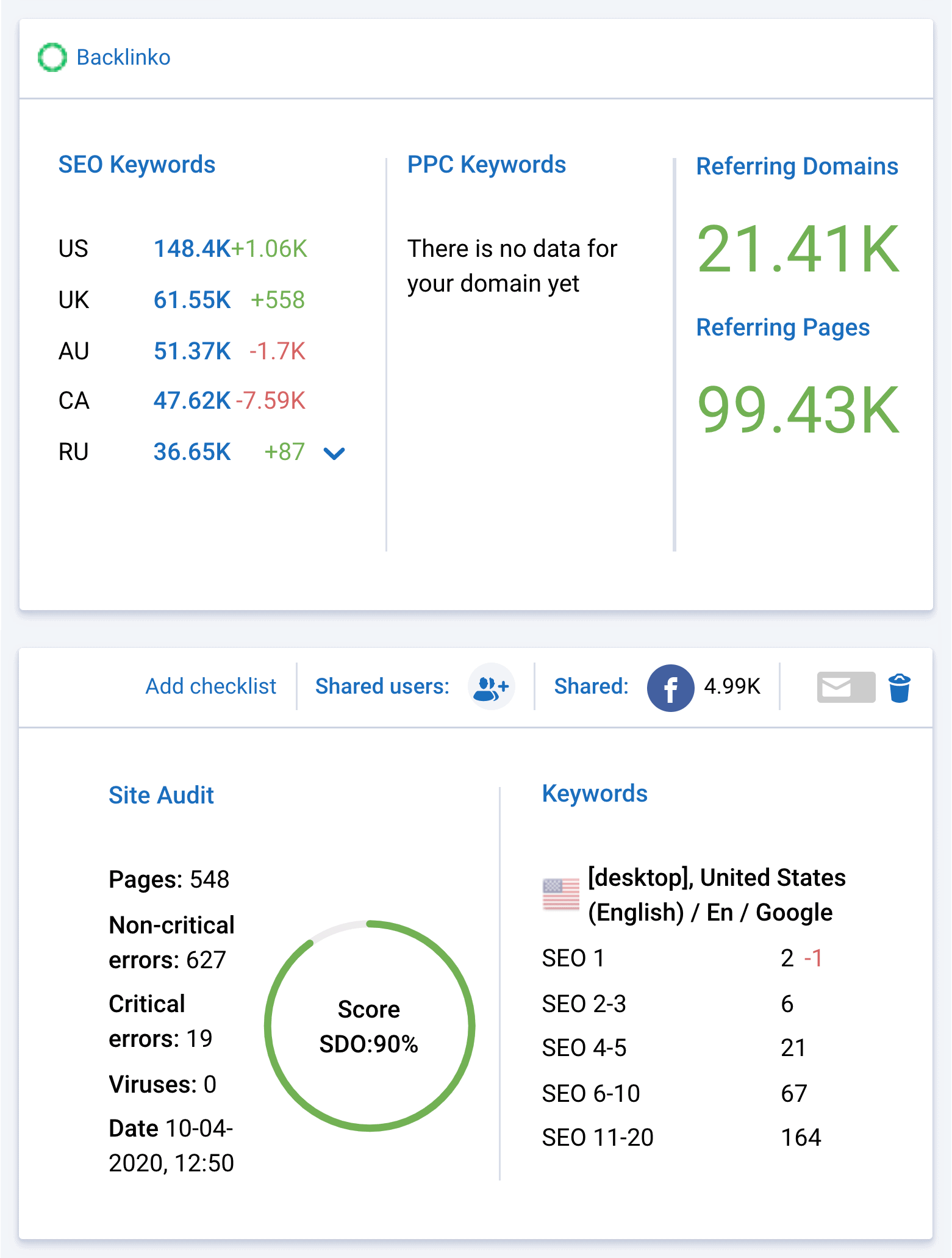
So I don’t need to cover every single micro feature here.
What I can say is that the data here looks to be spot on.
The one thing that this feature could use is some sort of domain authority or page authority feature.
Otherwise, it’s tough to sort through a list of a site’s backlinks. For example, let’s say a site has 100k backlinks. It’s helpful to be able to sort and filter the list by page authority or domain authority.
To be fair, Serpstat does have a “Domain Rank” metric. But it’s only available in the referring domains report.
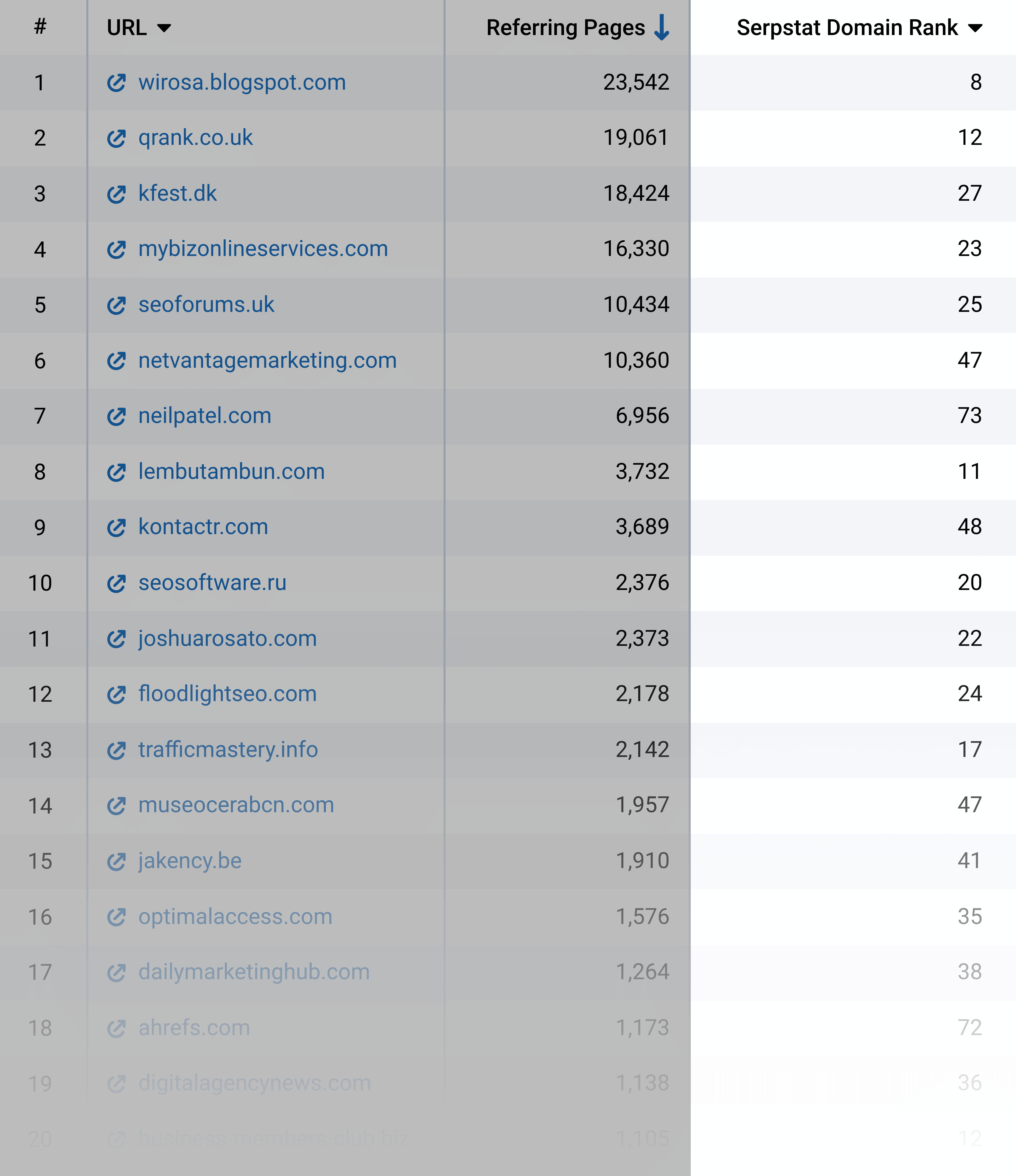
Serpstat Rank Tracking
If you’ve used one rank tracking tool you’ve pretty much used them all.
So I’m not going to spend a ton of time on Serpstat’s rank tracker tool.
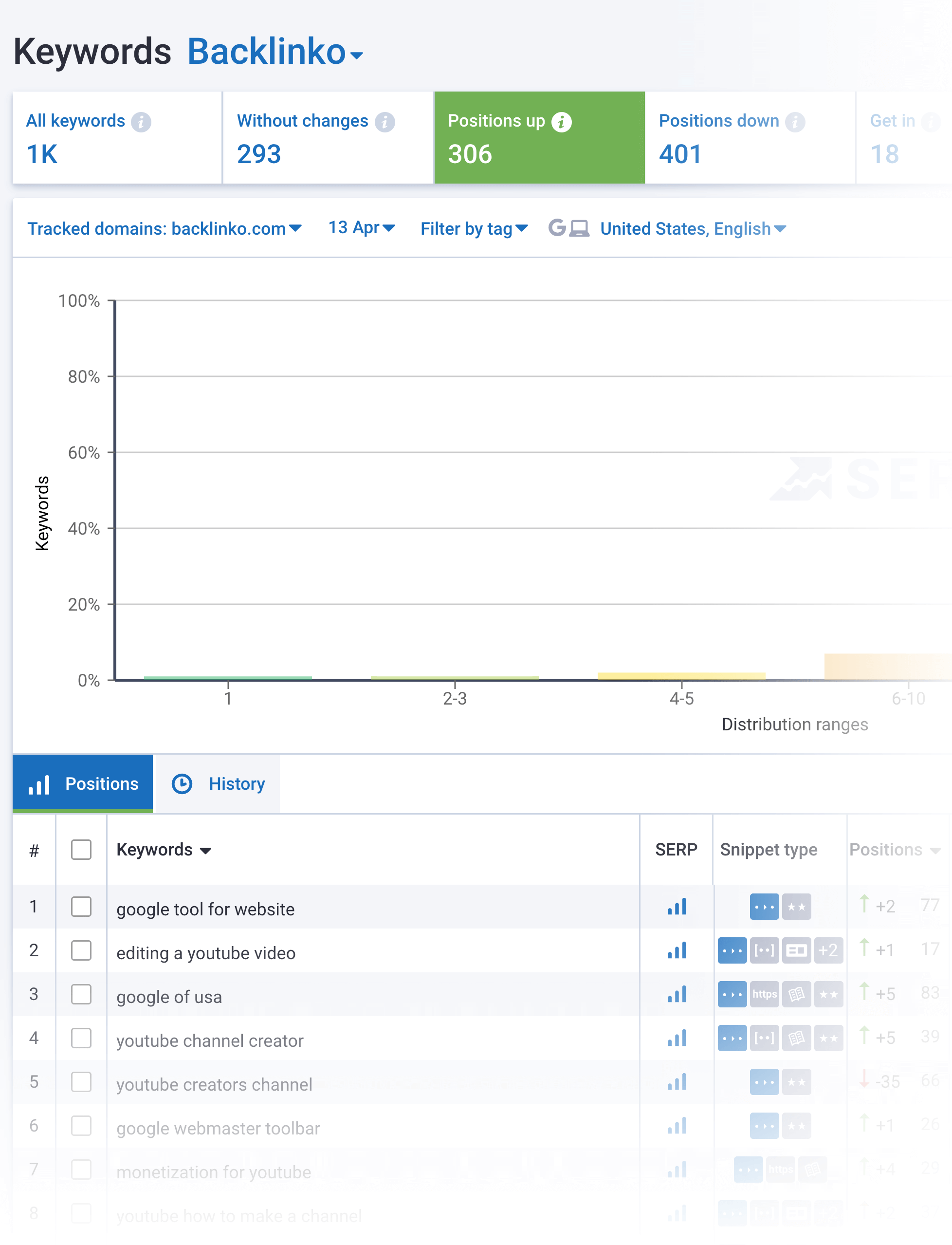
What I can say is that it was super easy to add a list of keywords. And they seem to update every single day (something that can’t be said for Ahrefs).
Plus, you can track rankings from a specific city.
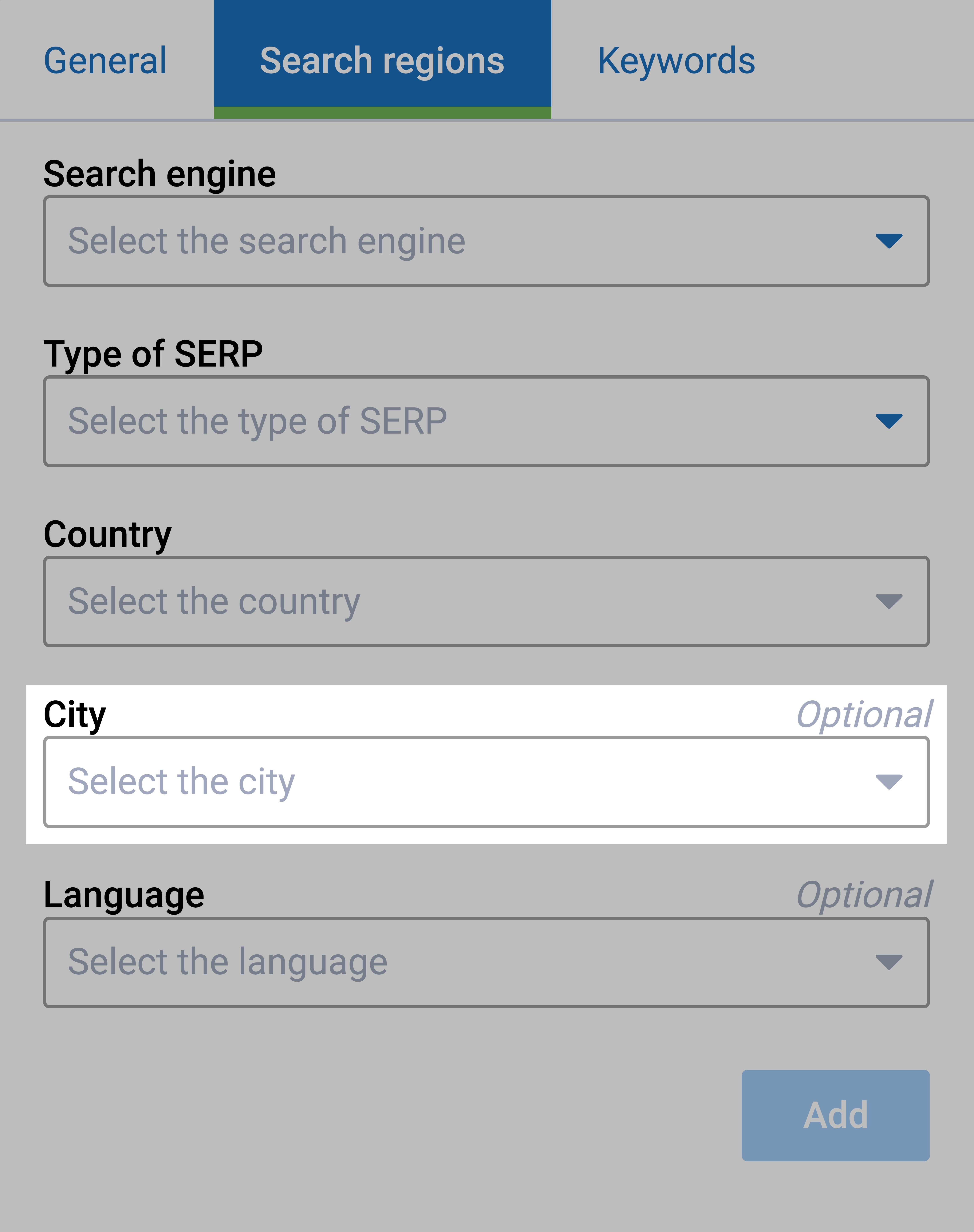
Which is super helpful if you do a lot of local SEO for clients.
So yeah, Serpstat has an easy to use and overall high-quality rank tracking feature.
Serpstat’s Site Audit Tool
Next, I wanted to evaluate Serpstat’s SEO audit feature.
So I ran it on a site that I know inside and out: my own 🙂
After about 6 minutes, I got a full report.
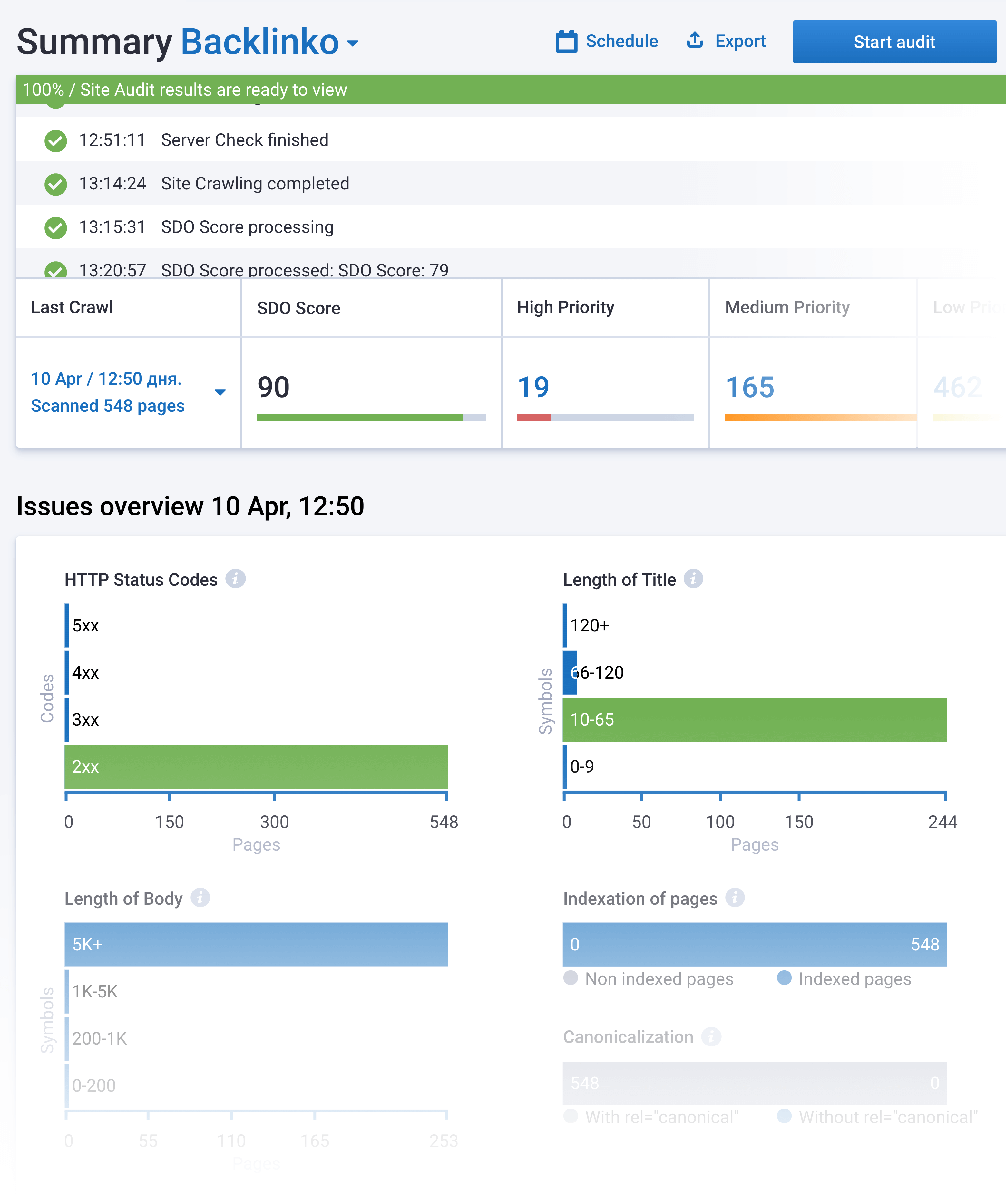
(Note: Backlinko is a relatively small site. If you have an ecommerce site with 100k pages, this will probably take a lot longer).
In my opinion, Serpstat’s site audit report is SUPER good.
Why?
First, it’s really thorough. You get info on the big stuff (like 404 pages). But also little things (like title tags that are too long).
Second, it’s easy to find and fix issues. In fact, Serpstat even categorizes problems into “high, medium and low” priorities:
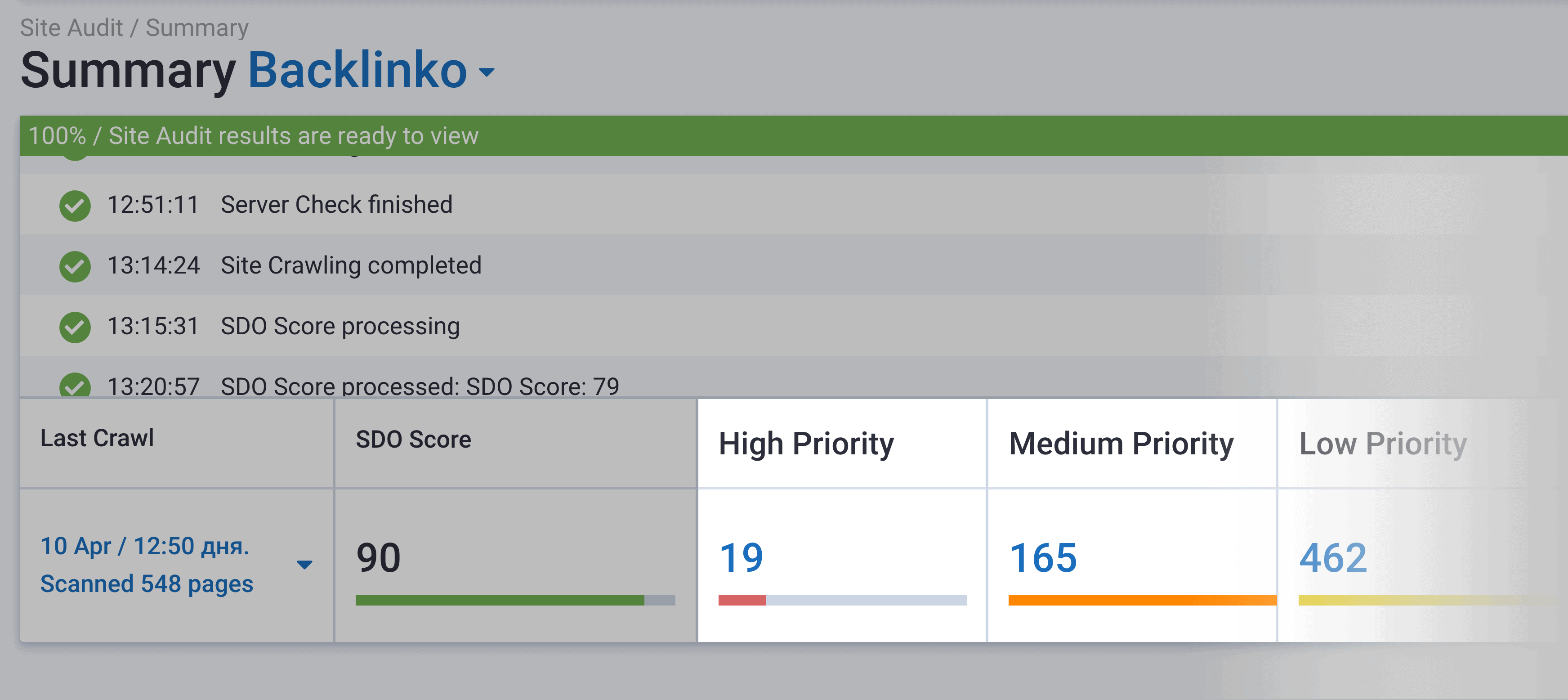
For example, in my case, one of my high priorities is that some of my pages had missing or duplicate meta tags.
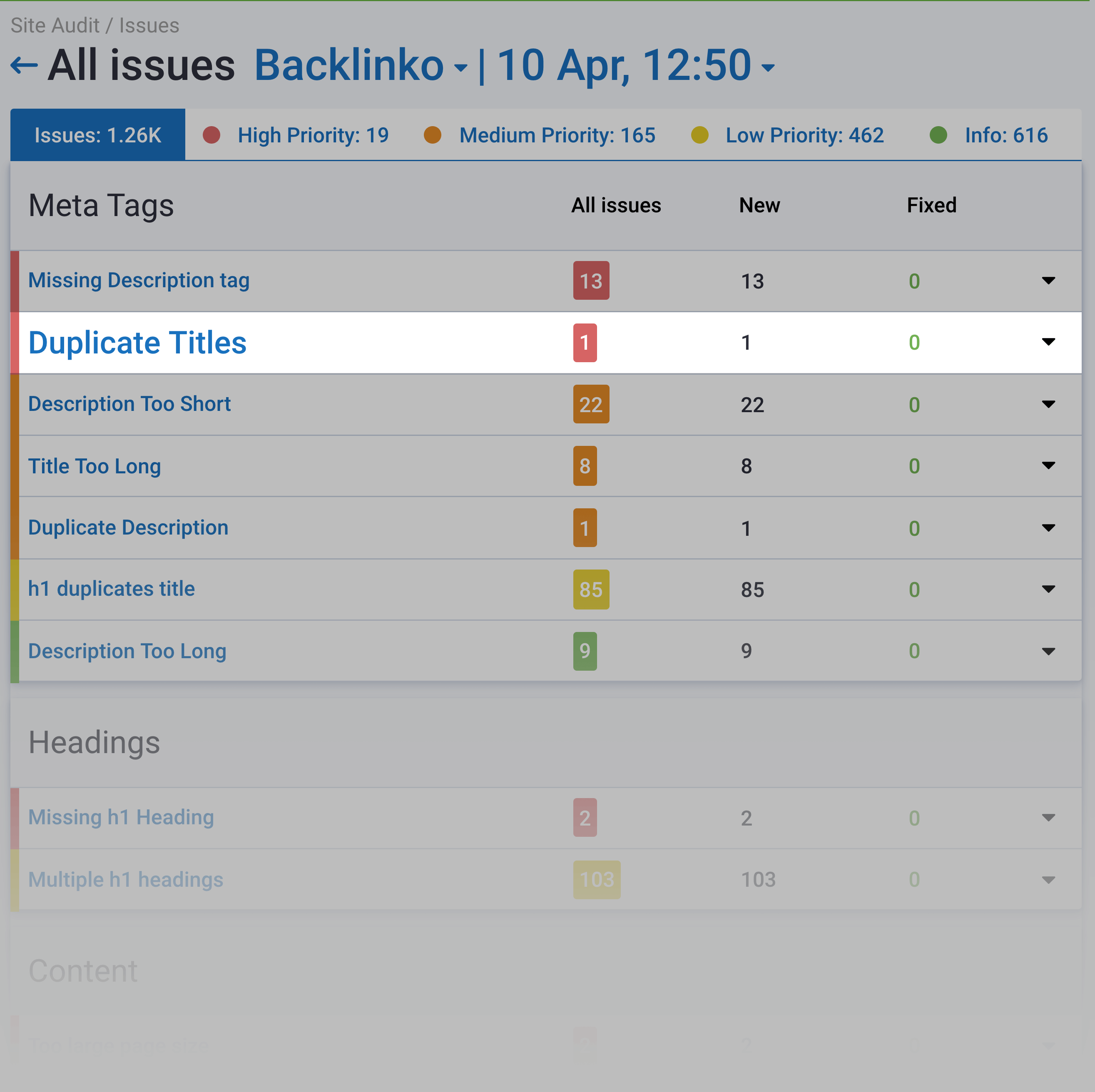
I also had a few pages with missing h1s:
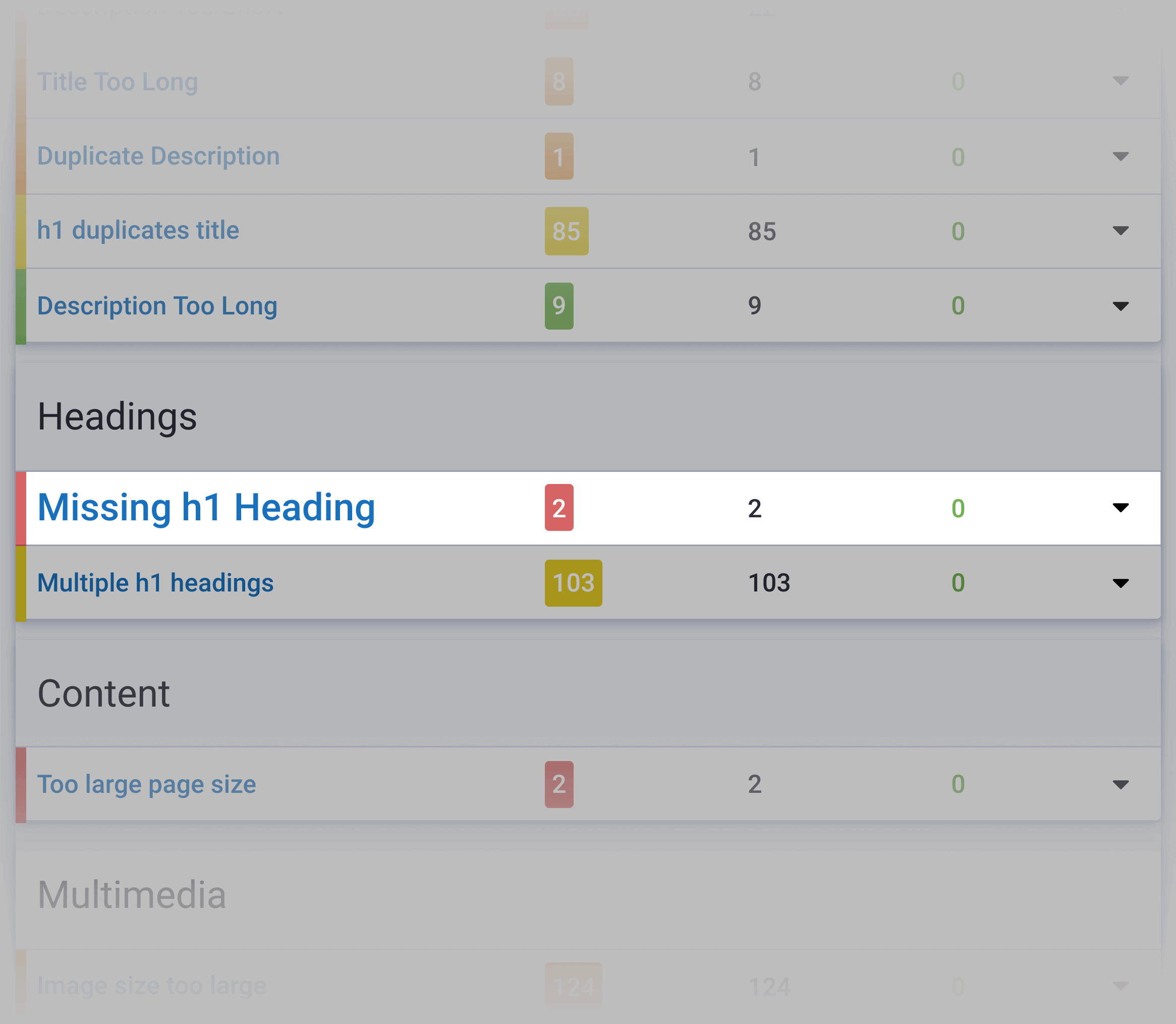
Overall, I found their site audit feature to be solid. It found a bunch of issues. And reported those problems in a way that made it easy to take action on.
Serpstat Support
Like any SEO tool, support is a HUGE part of the tool’s overall value.
Which is why I decided to test out Serpstat’s support.
Fortunately, Serpstat has a chat option. Which means that I didn’t have to go fishing around for a support email.
I wanted to better understand a metric in their site audit report. So I asked them about it:
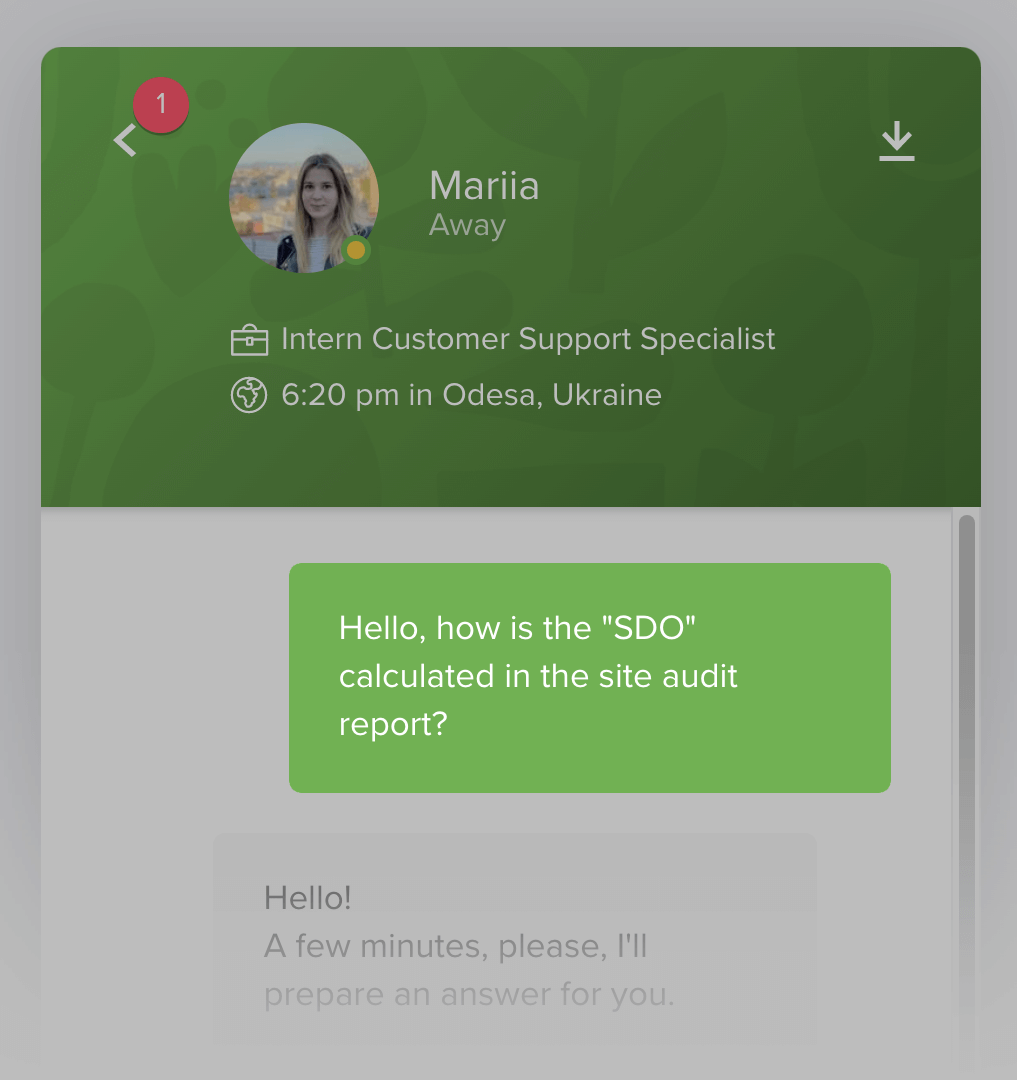
And about a minute later, I got a helpful reply.
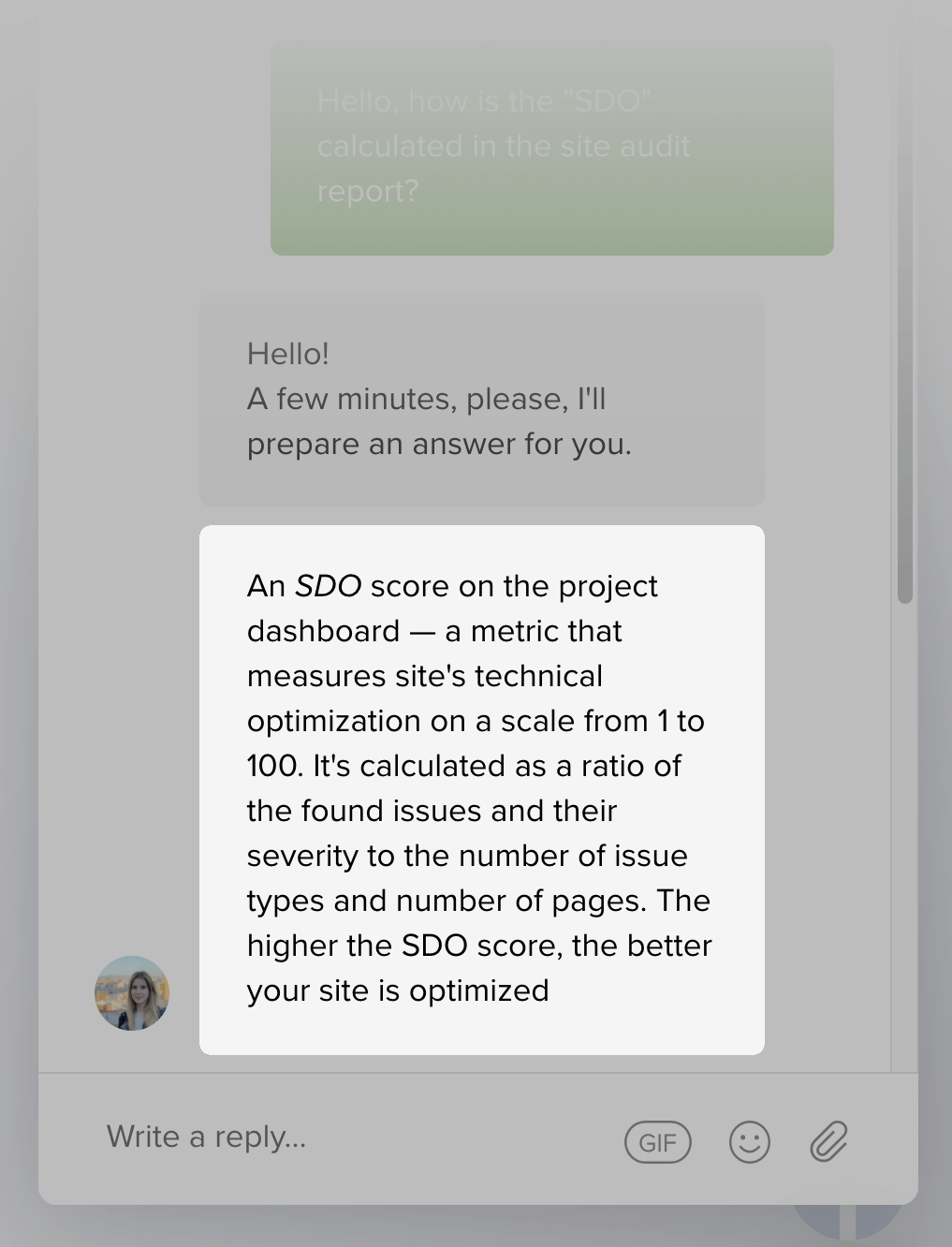
Wow.
At least according to this test, their support looks to be responsive and helpful.
Serpstat Pricing
Like most tools, Serpstat’s pricing depends on how much data you need. And how many websites you manage.
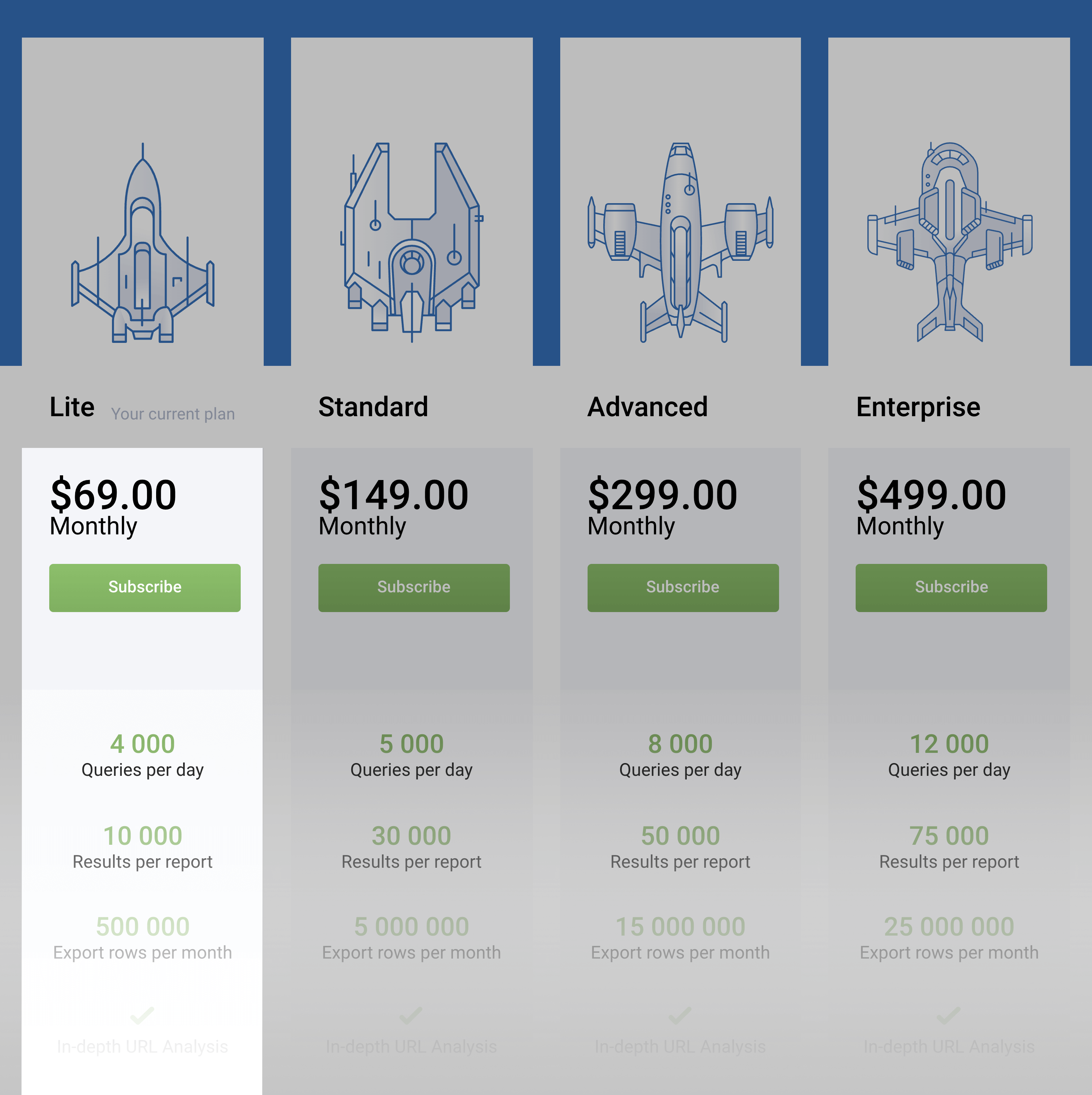
Overall, Serpstat is cheaper than Moz, Ahrefs or SEMrush. Their cheapest plan “Lite” ($69/month), is about 30% less expensive than Ahrefs ($99/month).
And if you run an SEO agency or want an enterprise-level tool, Serpstat is also on the more affordable side. It’s highest-tier plan is $499/month. Which is half the price of Ahrefs’s $999/month “Agency” plan.
Serpstat: Things I Liked
Great UX: I found Serpstat to have a clean UI. And a UX that made it easy to jump to the feature that you need at any given time. For example, when I wanted to use their “Domain vs Domain” feature, Serpstat gave me a list of competitors.
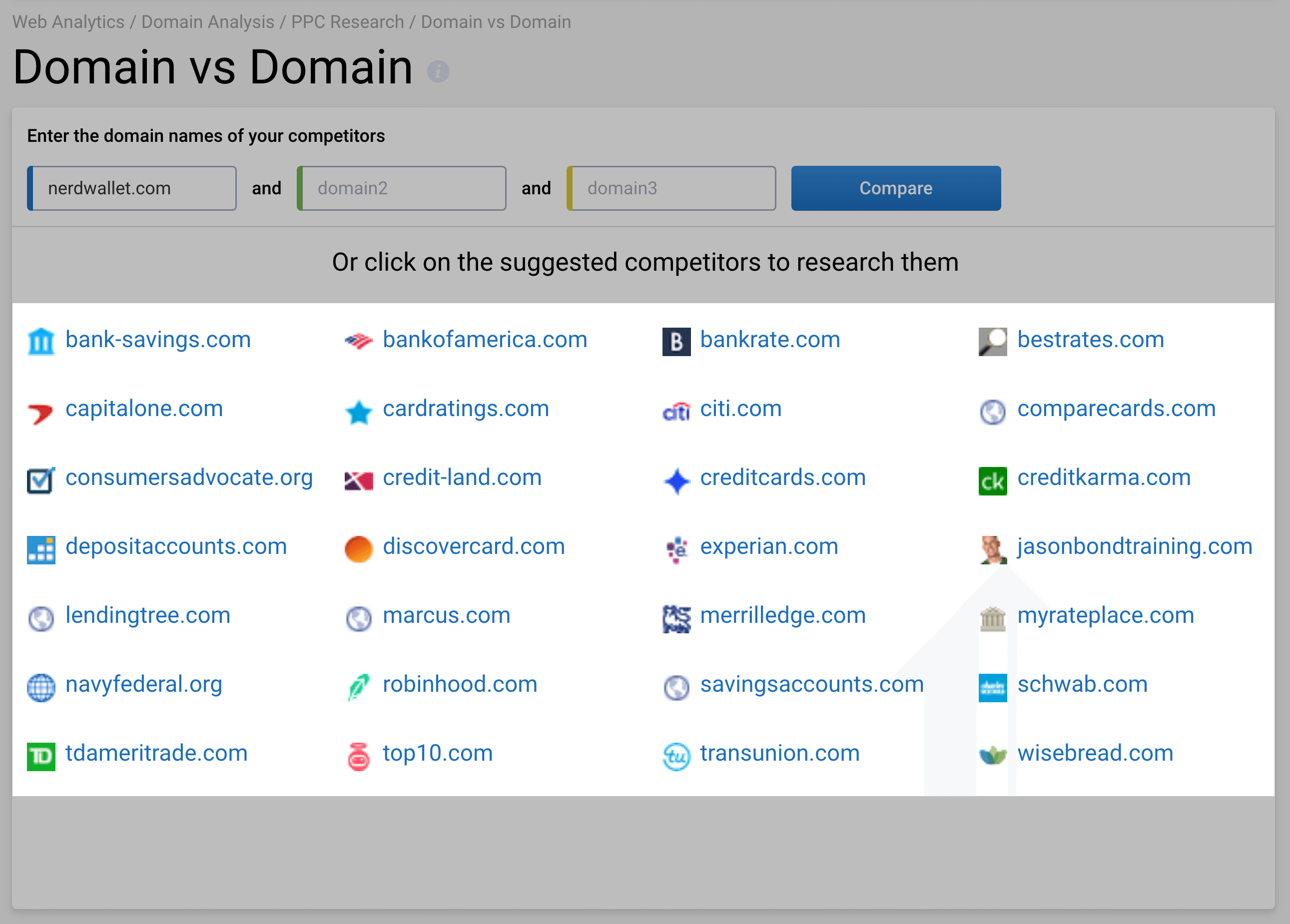
This is just one example of the many little touches that Serpstat includes in their tool to make it easy to use.
Fast and Helpful Support: I haven’t had a ton of interactions with Serpstat support. But the few I did were impressive. A big checkmark here.
World-Class SEO Audit Tool: Serpstat’s SEO audit tool was fast, easy to use and thorough.
Daily Rank Tracking: Serpstat’s rank tracker updates daily. And makes it easy to see how your site’s rankings are trending over time.
Solid PPC Analysis: If you’re big into Google Ads, you’ll probably get a ton of value out of Serpstat’s PPC tool suite.
Serpstat.com: Things I Didn’t Like
Inaccurate SEO Research: On the surface, Serpstat’s SEO research report is exactly the same as Ahrefs and SEMrush. Unfortunately, the actual data isn’t nearly as accurate. Plus, I noticed a major bug (missing keyword difficulty on 95%+ of the keywords).
Confusing UX Writing: Serpstat has explanations for pretty much every feature. But those explanations aren’t always clear. In fact, there was an entire feature in Serpstat (“Tree view”) that I straight up couldn’t use because the explanation was so confusing:
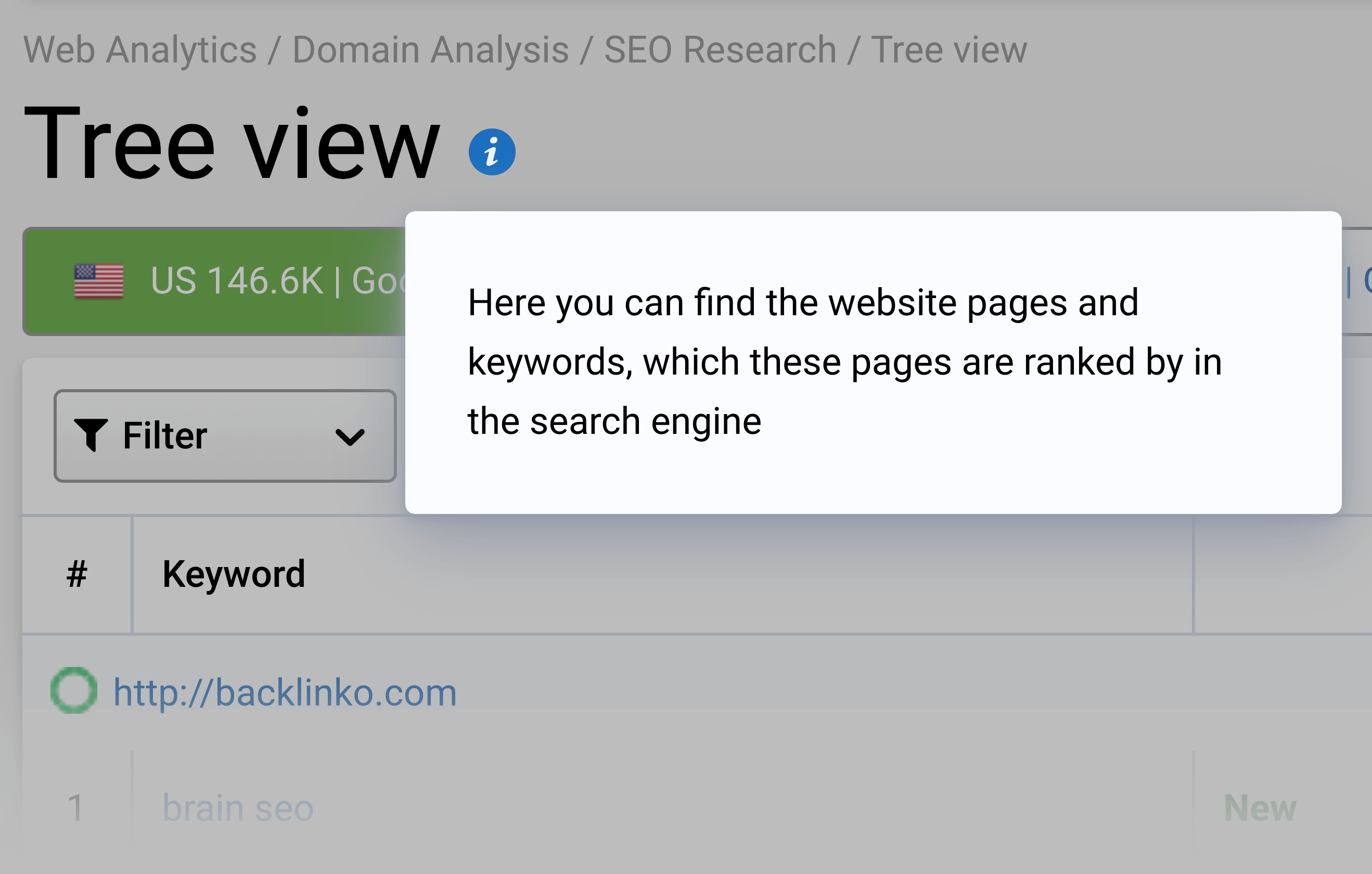
Lack of Unique Features: Ahrefs has Content Explorer. SEMrush has its Keyword Magic Tool. I felt like Serpstat didn’t really have any unique features that helped it stand out.
No Content Marketing Tools: Serpstat claims to be a “growth hacking tool for SEO, PPC and content marketing”. They definitely have plenty of SEO and PPC features. But there’s not much there to help with content marketing (unless you count keyword research).
My Overall Serpstat Review
Overall, Serpstat is a solid SEO tool. It’s got all of the features you’d expect from an SEO software suite. And it’s competitively priced compared to its main competitors.
However, the features themselves are a mixed bag. The SEO site audit feature is super good. But their SEO competitor analysis feature is inaccurate and buggy.
So for now, I’ll continue using Ahrefs and SEMrush. In my opinion they’re more well-rounded and robust tools.
But if you do want to give Serpstat a shot, I don’t think you’ll walk away disappointed.

